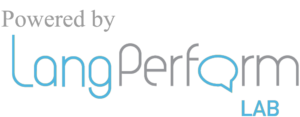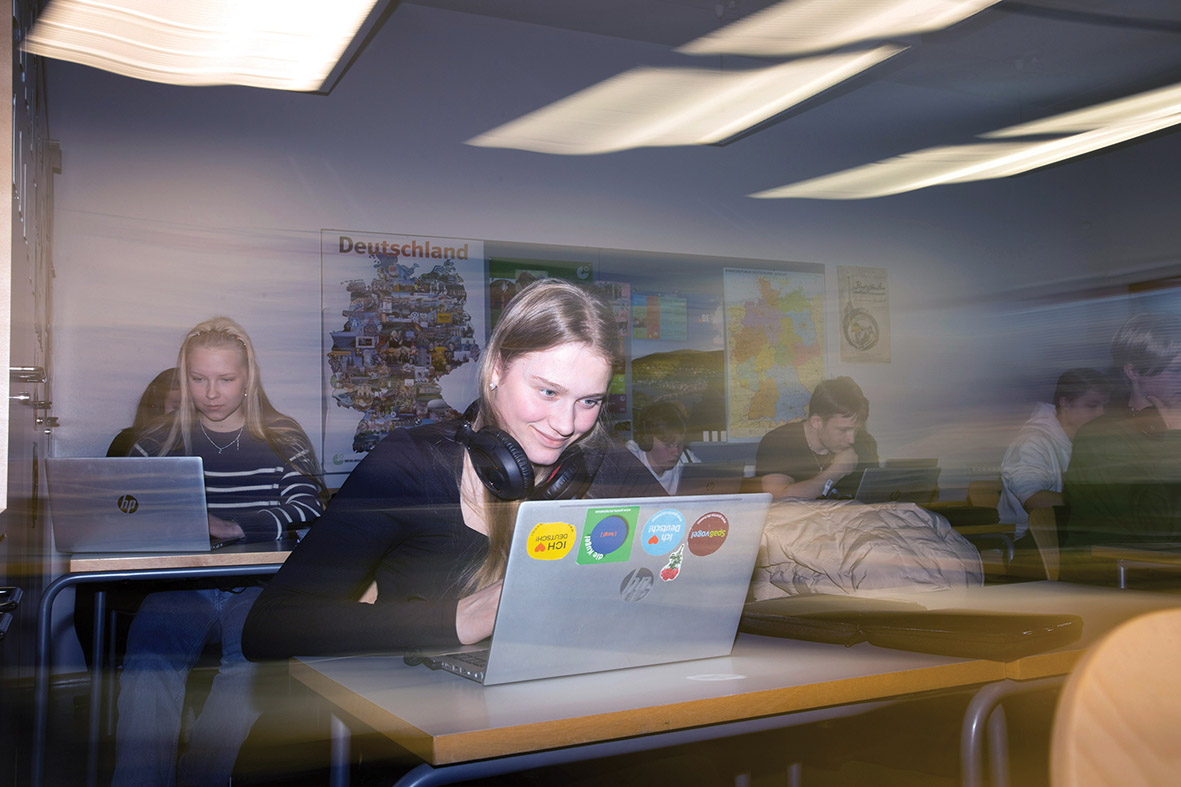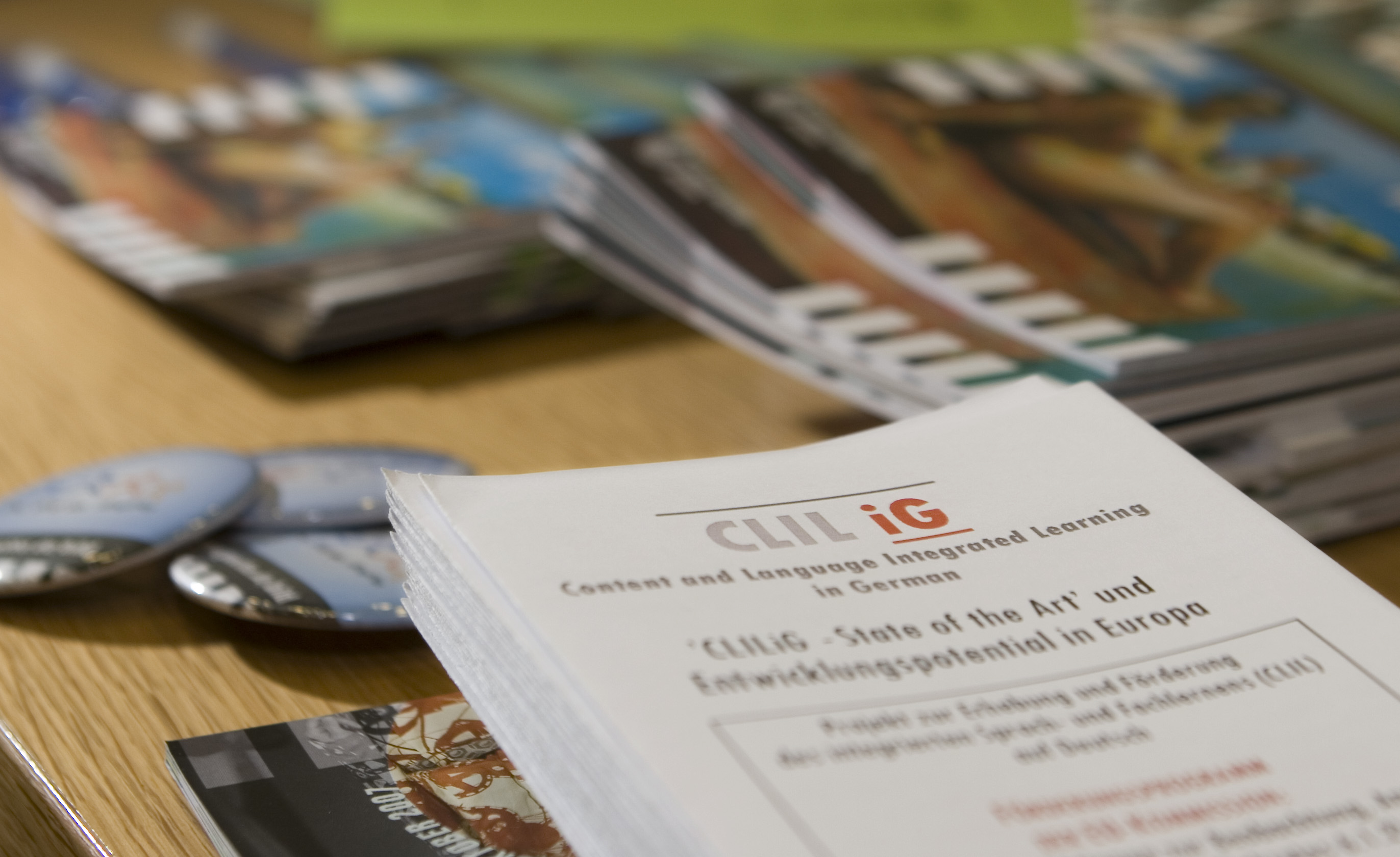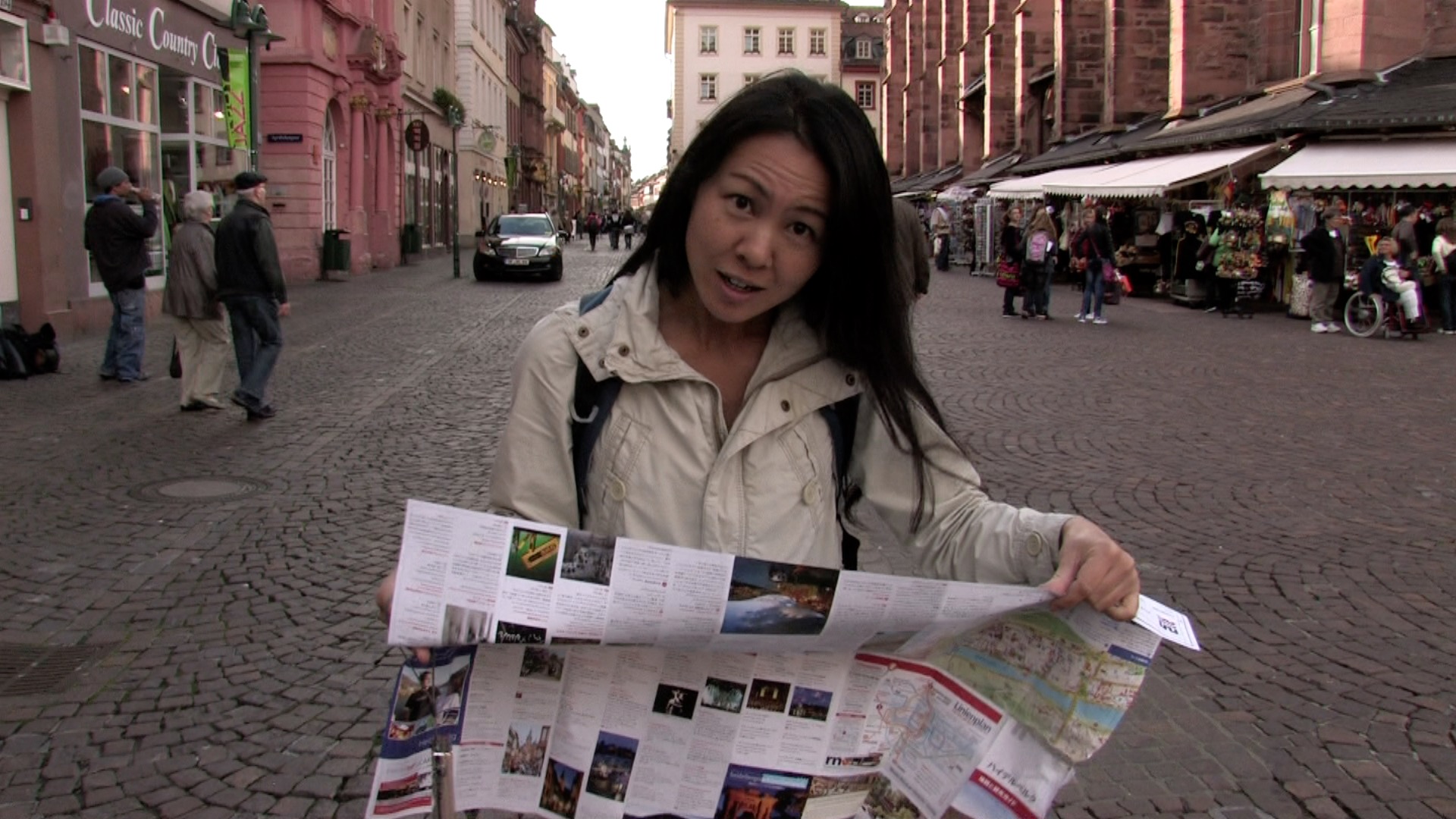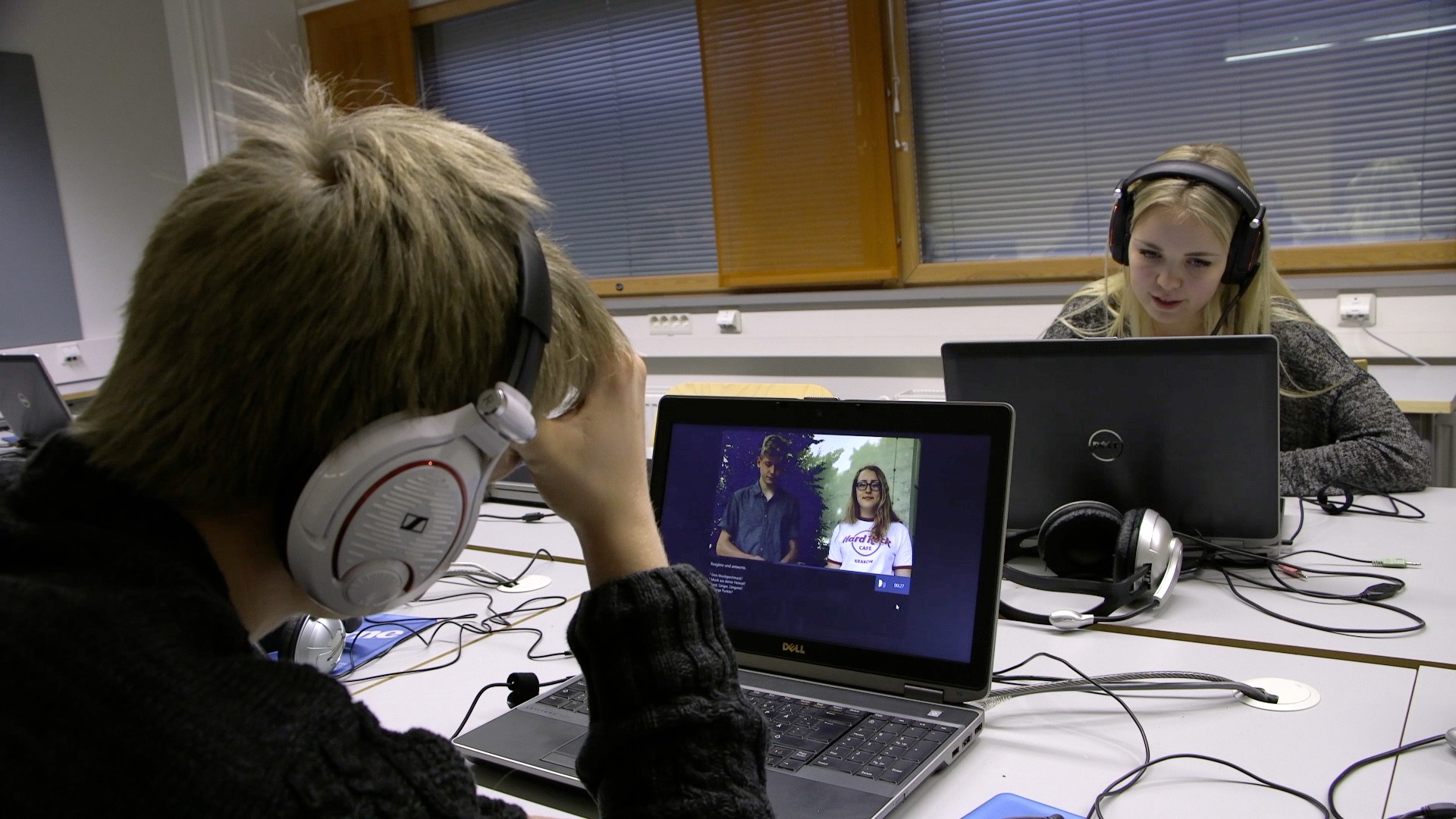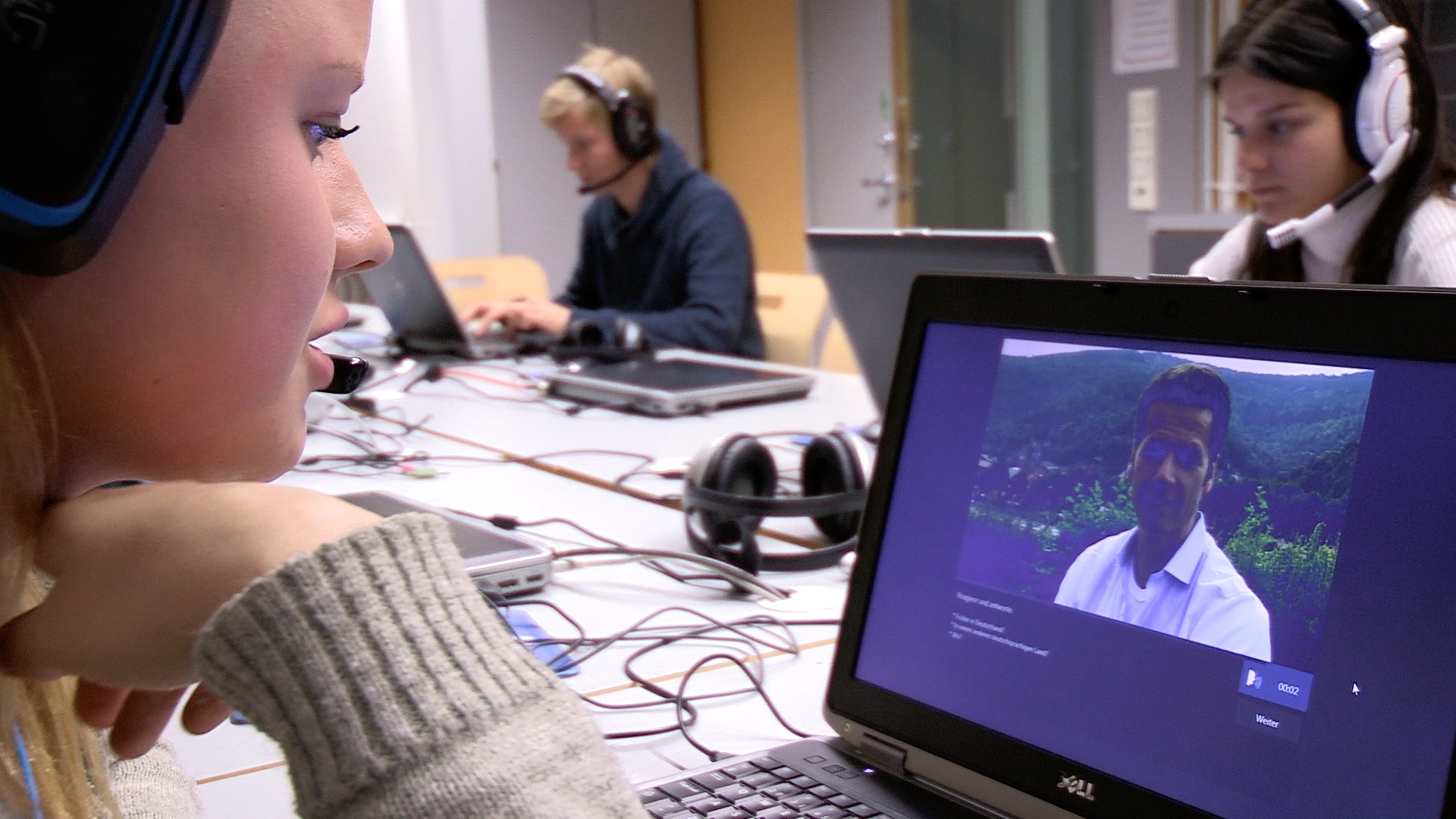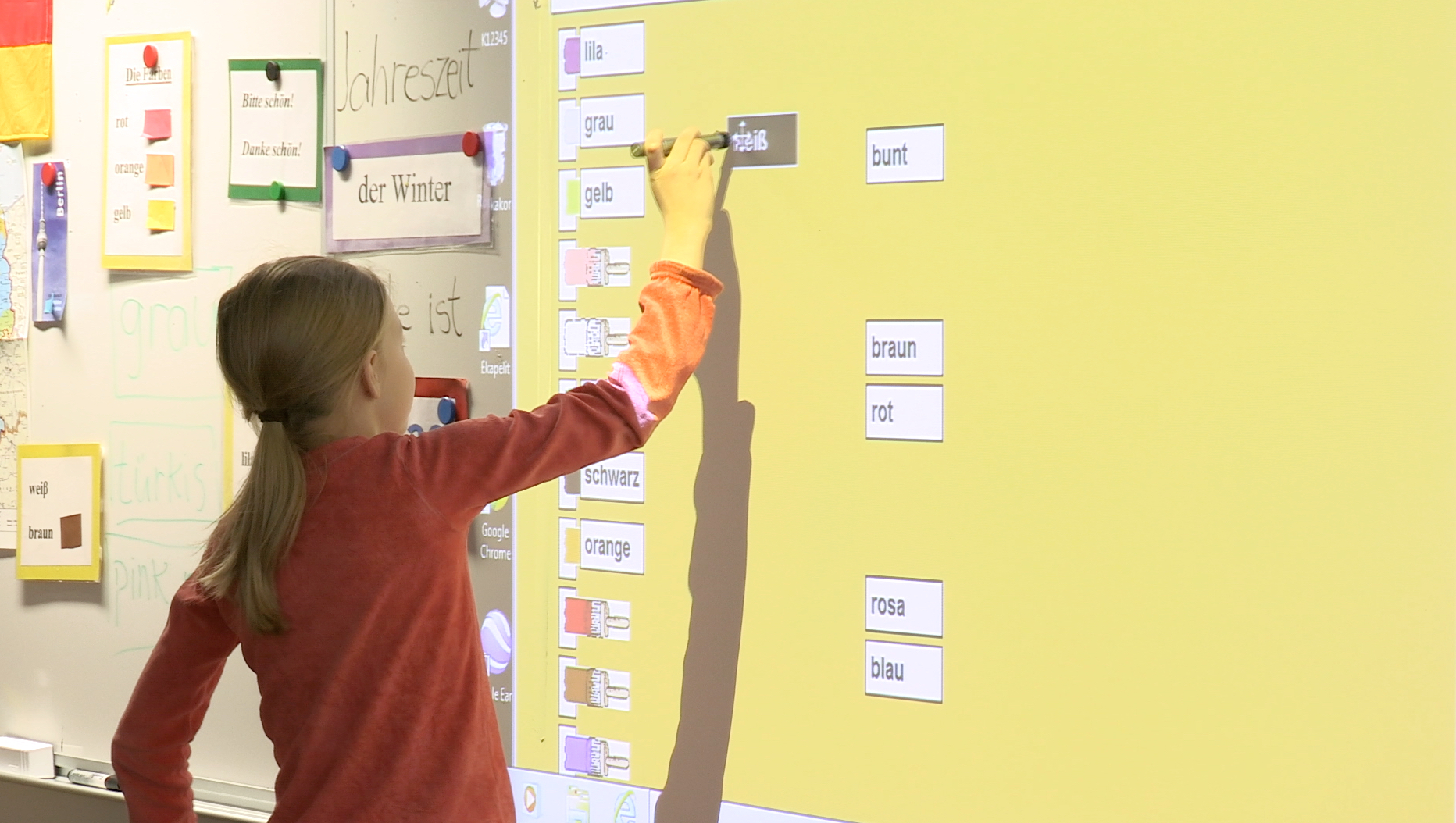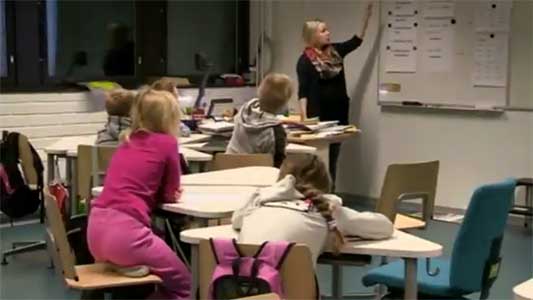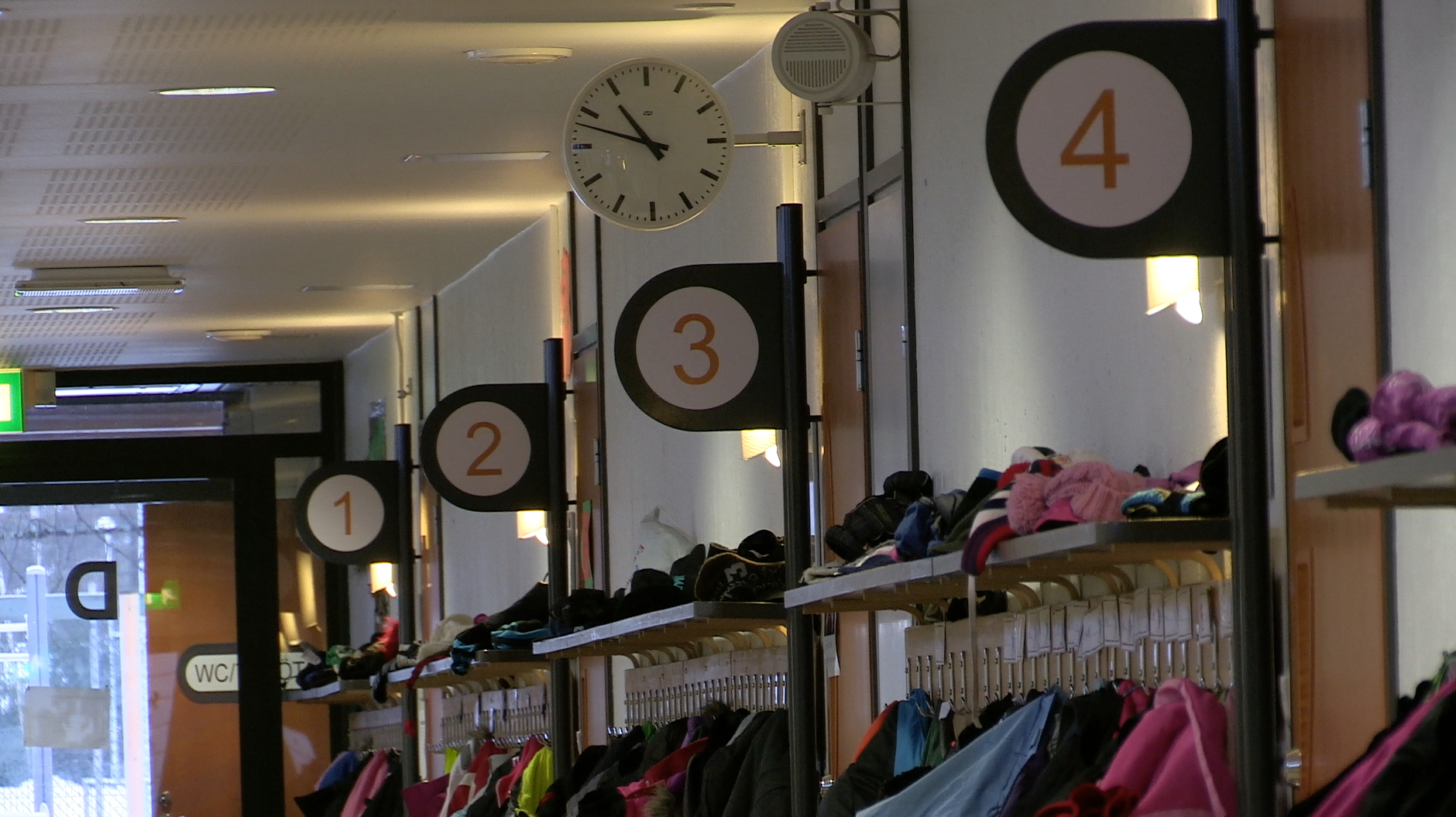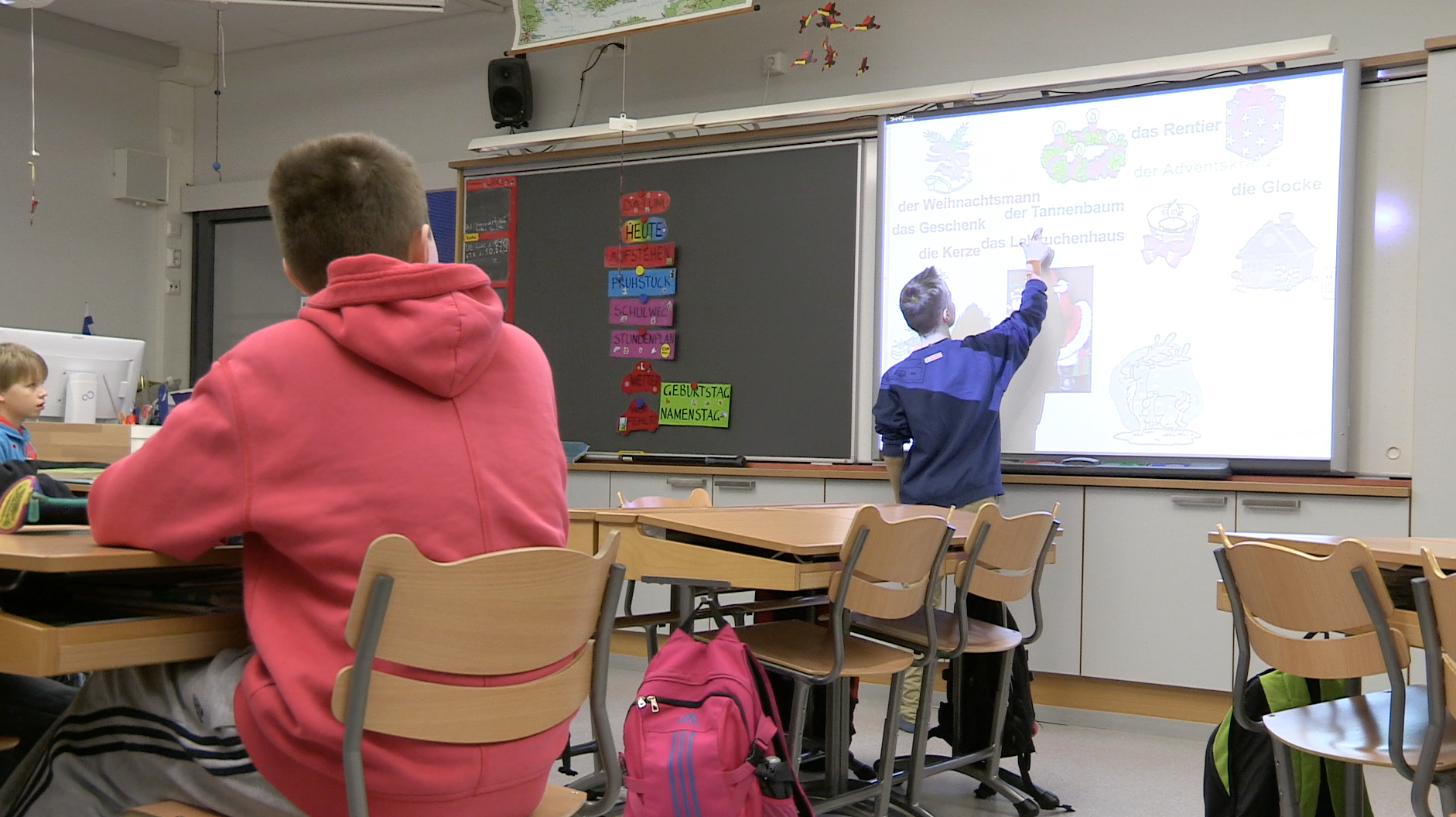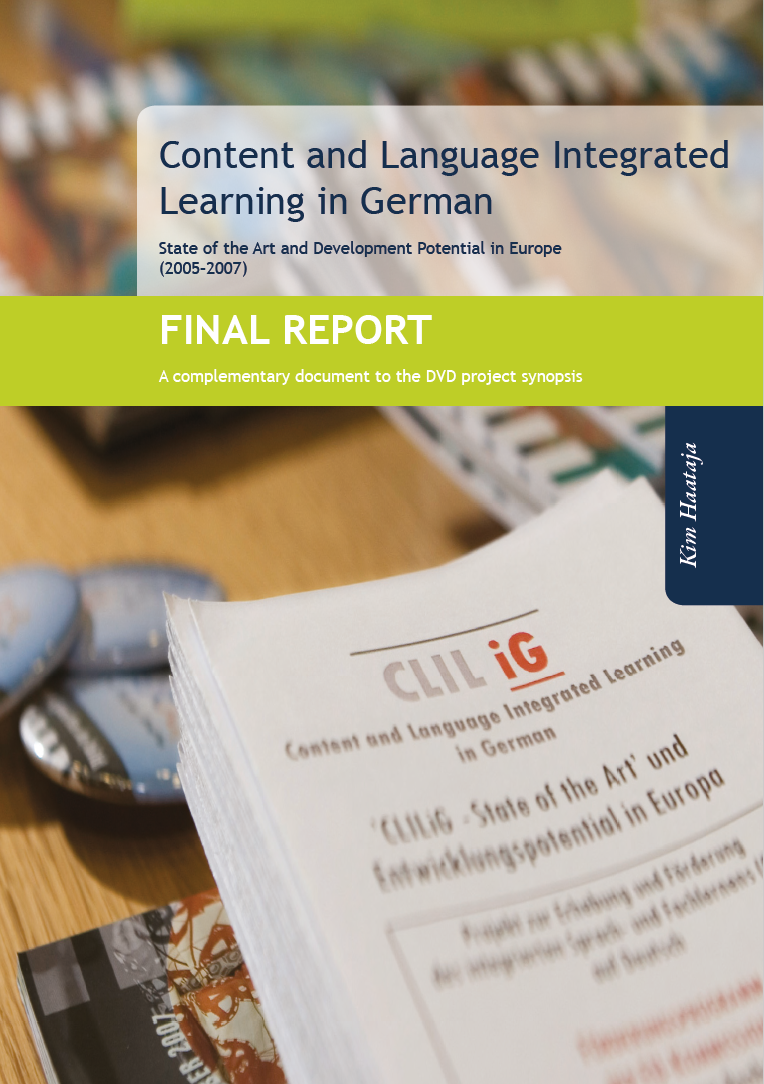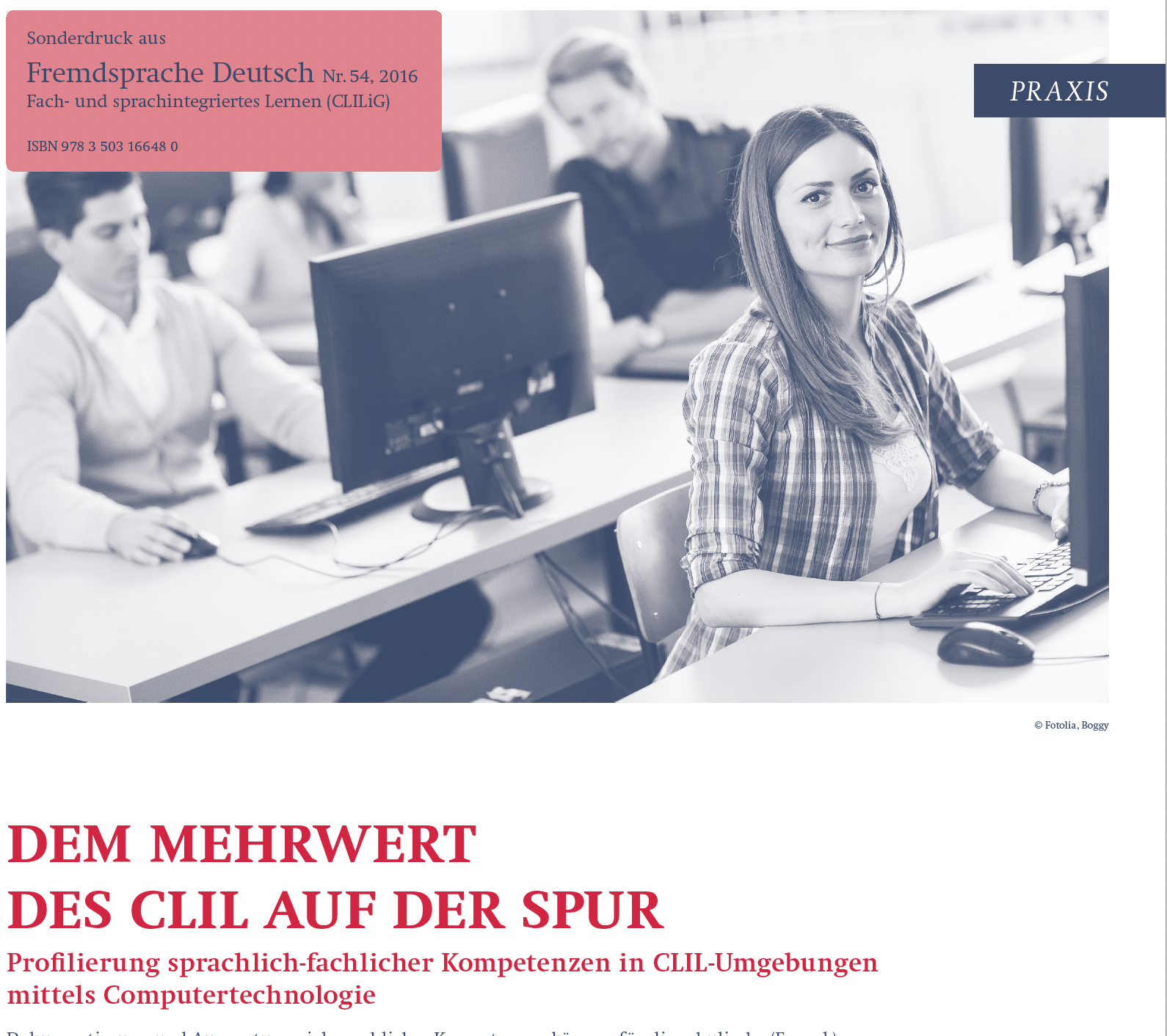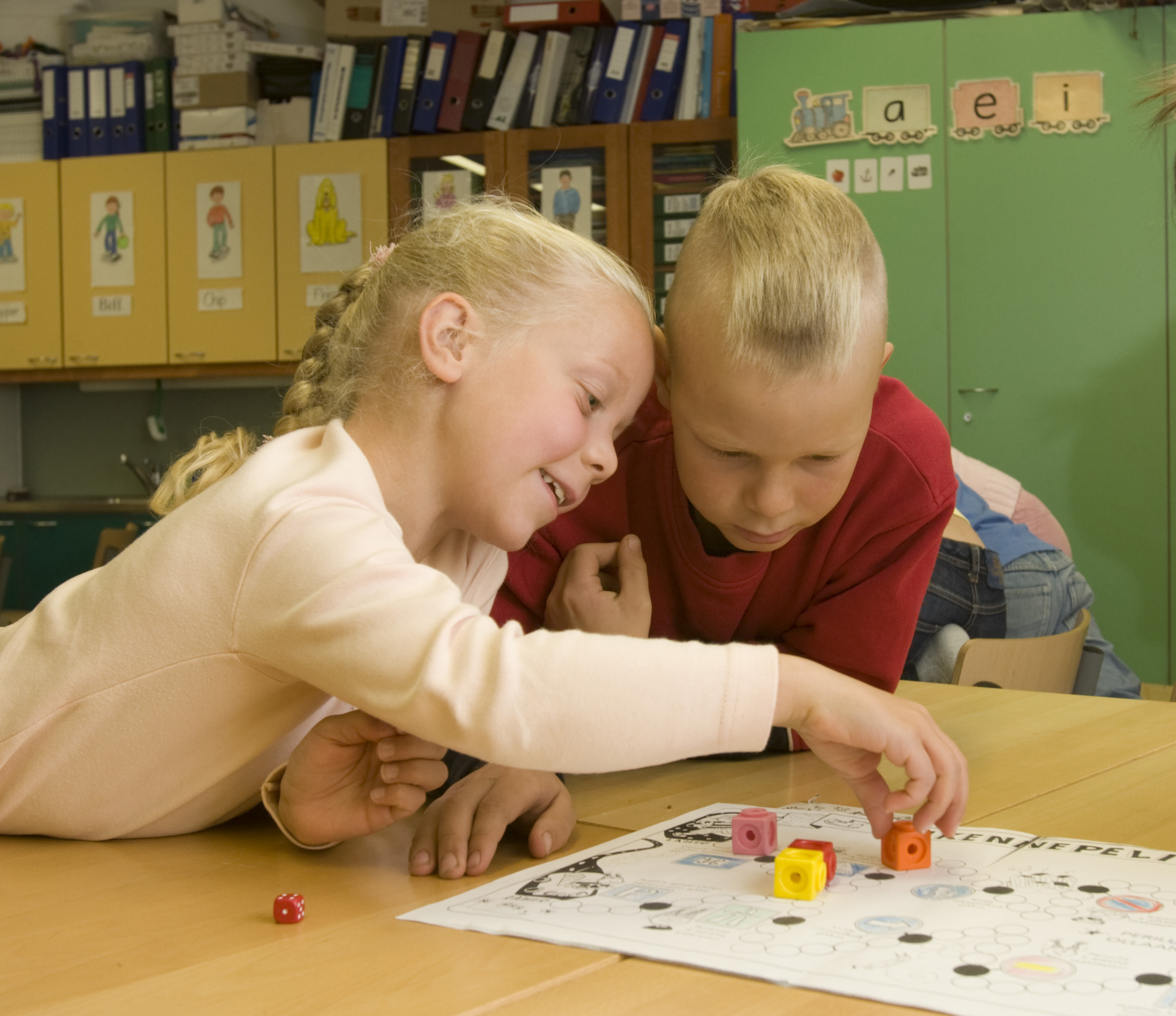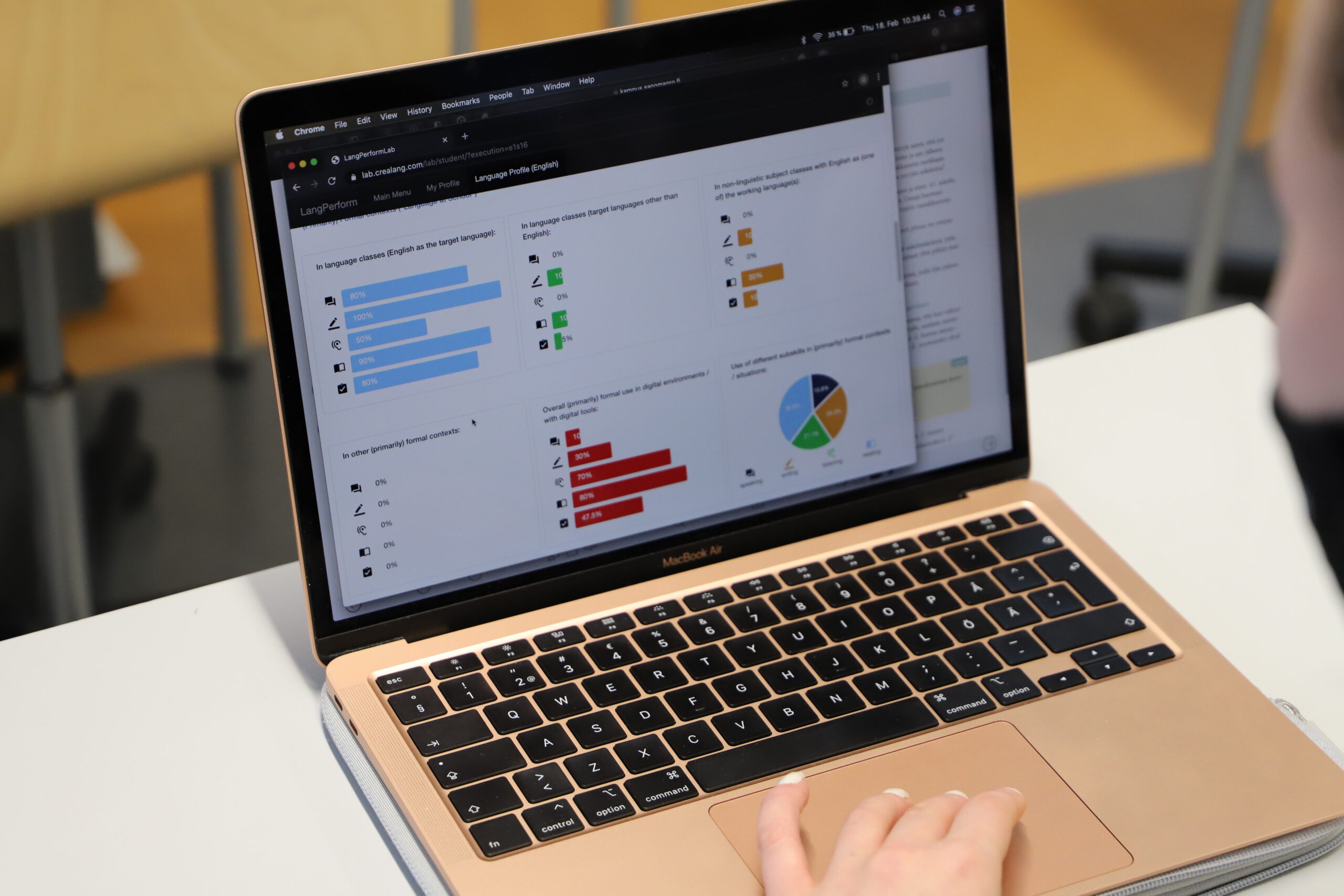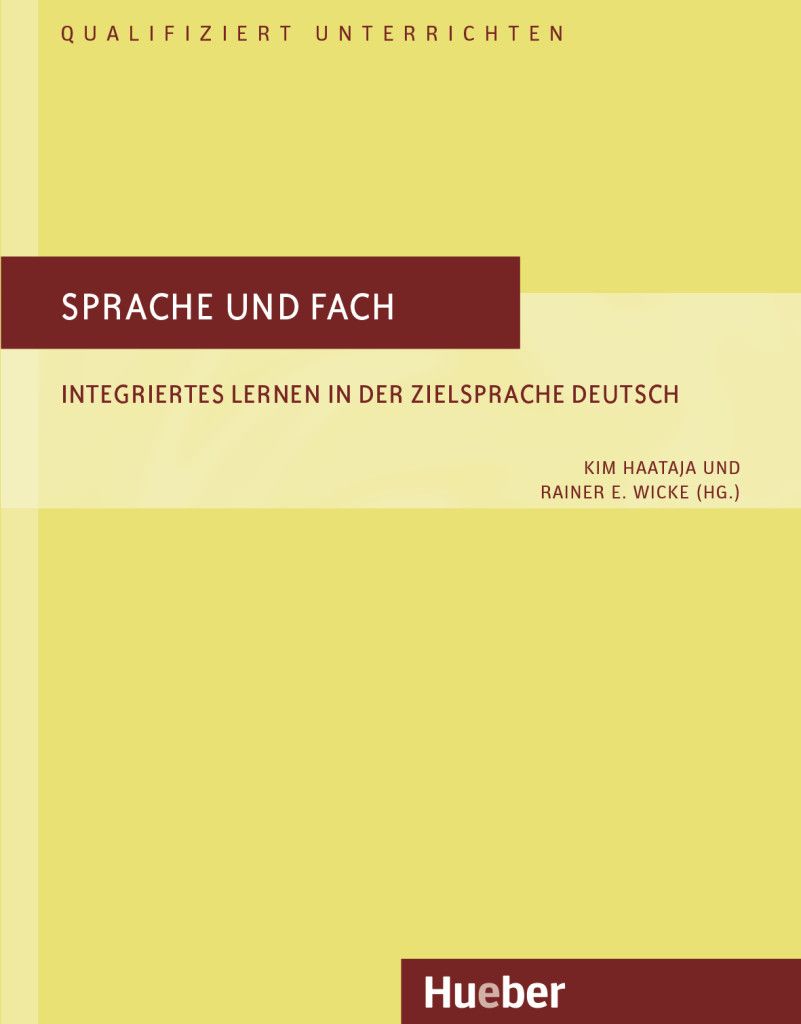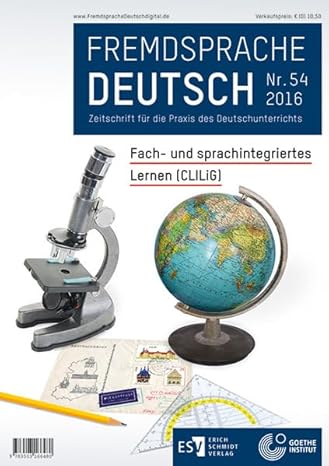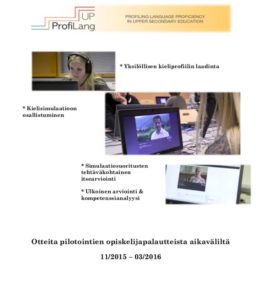CRI | Publications & Releases
Film-based Language Simulations | Video Documentaries | Articles & Reports | Books & Journals | Academic Thesis Work |
…WORK IN PROGRESS – ALWAYS.
Content and Language Integrated Learning in German (CLILiG) | Curriculum-specific Simulation Series
CLILiG-INSIGHTS | MADRID
- A Series of 9 Language Simulation Units
- Total Running Time: 6 hrs 10 min
- Primary Target Classes: 8, 9 and 10 at the Colegio Alemán de Madrid in Madrid, Spain
- Curricular Basis: German Language Arts & History in the Grades 8, 9 and 10
- Main Content Areas: The Middle-Ages, Early Modern Times, 19th Century

See Video Documentary on the Trial Implementation in Madrid, Spain
Language Profiling and Simulation Journeys “in praxi” – (How) Do they work?
Continuous Language (Learning) Profiling | School- and Curriculum-specific Computer Simulations | Online Analysis and Assessment Solutions
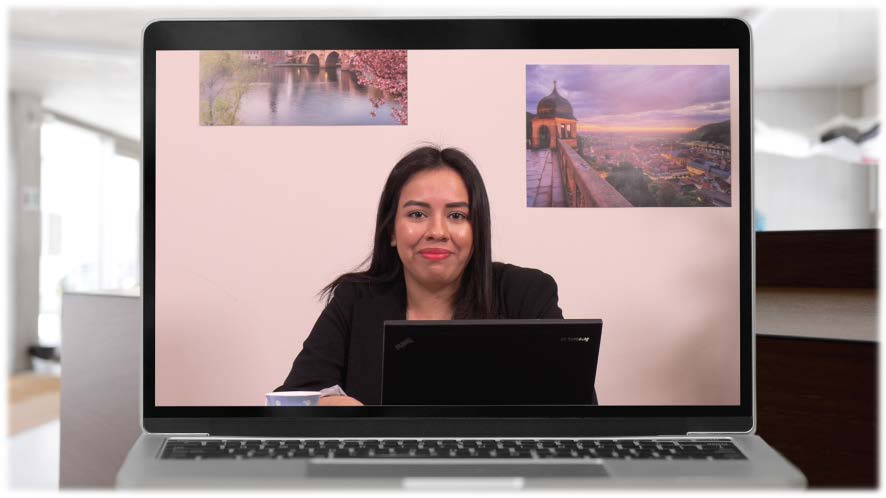
CLILiG MADRID 1: „Einstieg & Kennenlernen: Über dich, dein Sprachprofil & dein Schulumfeld“
RUNNING TIME: Appr. 40 Min.
PRIMARY TARGET GROUP: Grade 8 | Deutsche Schule Madrid (DSM)
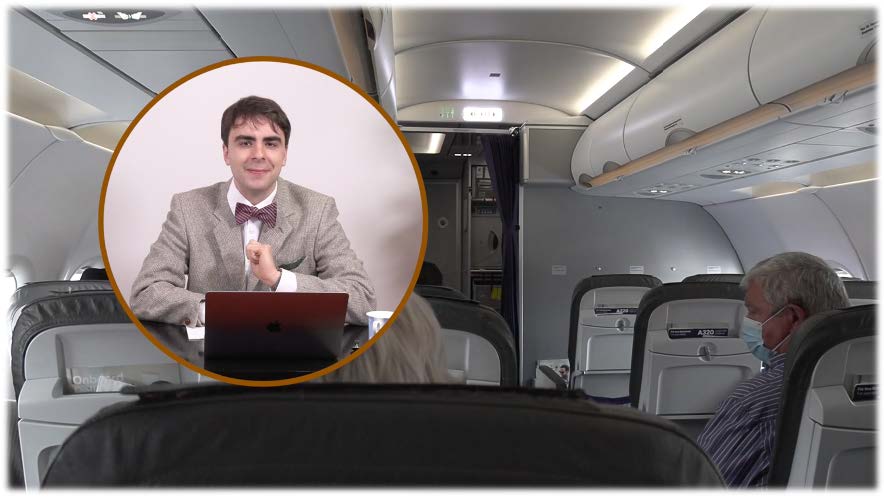
CLILiG MADRID 2: „Flugreise & Einstimmung auf fachinhaltliche Schwerpunkte“
RUNNING TIME: Appr. 35 Min.
PRIMARY TARGET GROUP: Grade 8 | Deutsche Schule Madrid (DSM)
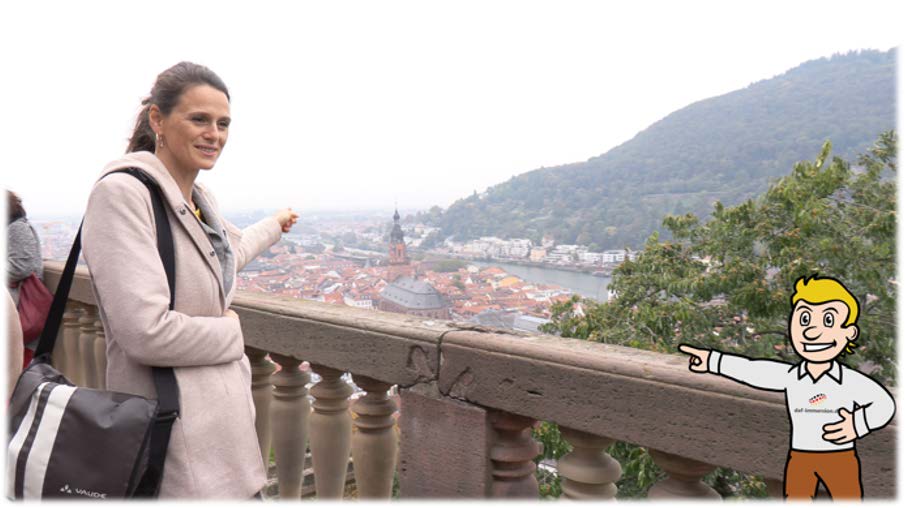
CLILiG MADRID 3: „Willkommen in Heidelberg: Die Geschichtsreise beginnt – im Mittelalter“
RUNNING TIME: Appr. 50 Min.
PRIMARY TARET GROUP: Grade 8 | Deutsche Schule Madrid (DSM)
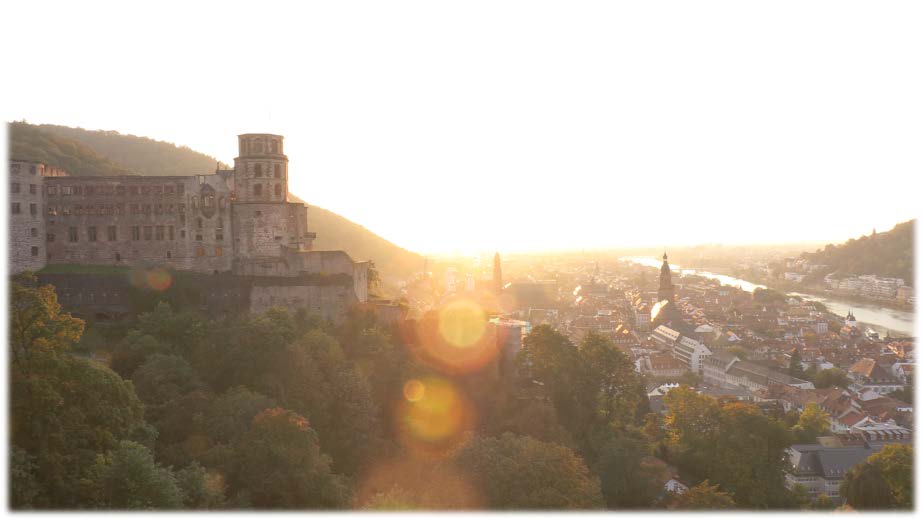
CLILiG MADRID 4: „Begegnungen im Heidelberger Schlossgarten: Ludwig XIV & internationale Studierende“
RUNNING TIME: Appr. 50 Min.
PRIMARY TARGET GROUP: Grade 9 | Deutsche Schule Madrid (DSM)
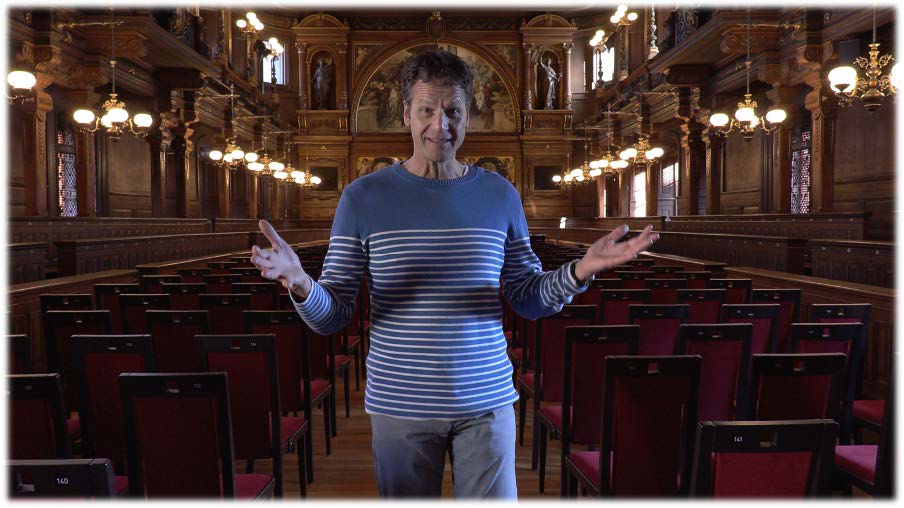
CLILiG MADRID 5: „Vom Schlossgarten zum Philosophenweg – Vom Absolutismus zur Aufklärung“
RUNNING TIME: Appr. 45 Min.
PRIMARY TARGET GROUP: Grade 9 | Deutsche Schule Madrid (DSM)
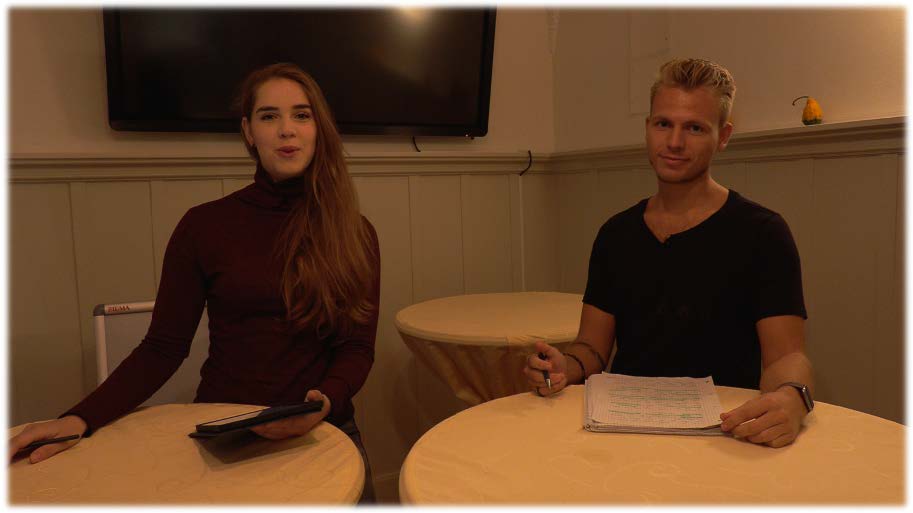
CLILiG MADRID 6: „Befragung zur Workshop-Teilnahme – Im Mittelpunkt: Die Französische Revolution“
RUNNING TIME: Appr. 32 Min.
PRIMARY TARGET GROUP: Grade 9 | Deutsche Schule Madrid (DSM)
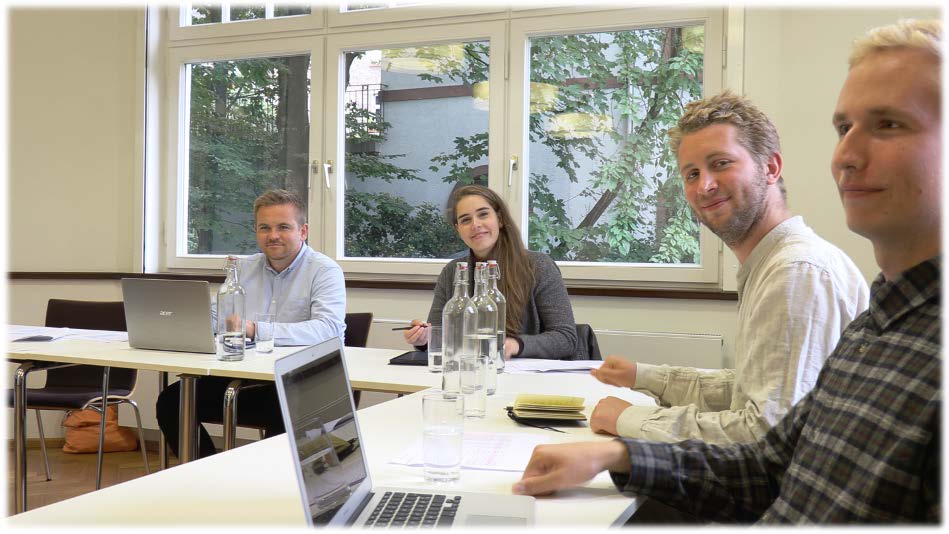
CLILiG MADRID 7: „Zu Gast im Geschichts-Workshop – TEIL I: Ereignisse im Europa des 19. Jahrhunderts“
RUNNING TIME: Appr. 52 Min.
PRIMARY TARGET GROUP: Grade 10 | Deutsche Schule Madrid (DSM)
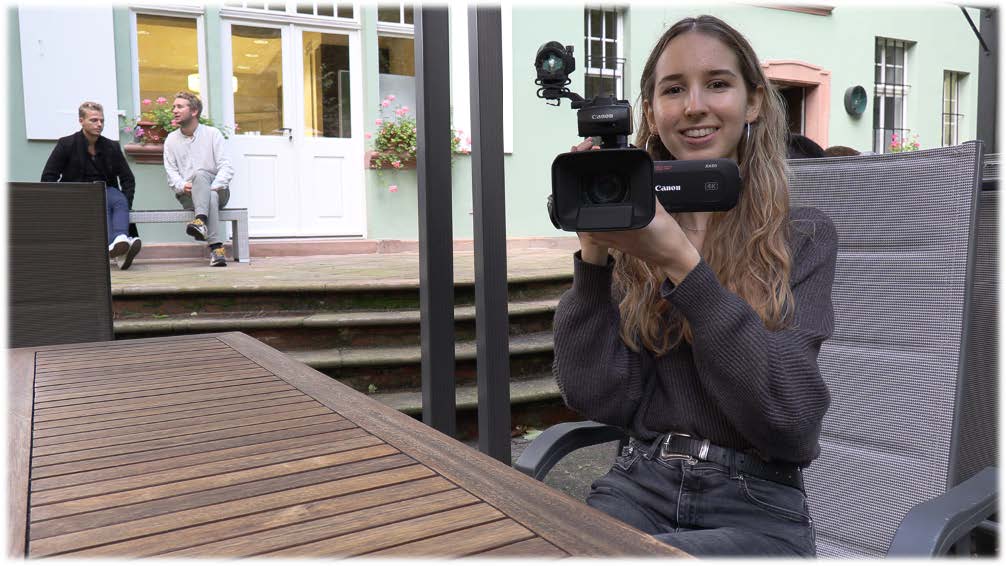
CLILiG MADRID 8: „Zu Gast im Geschichts-Workshop – TEIL II: Karikatur- und Kartenanalysen & Kurzvorträge“
RUNNING TIME: Appr. 37 Min.
PRIMARY TARGET GROUP: Grade 10 | Deutsche Schule Madrid (DSM)
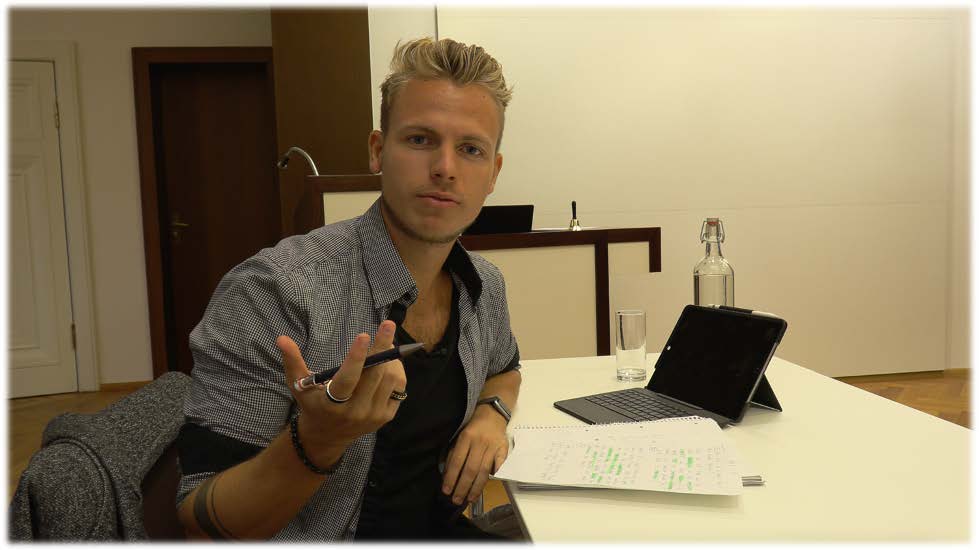
CLILiG MADRID 9: „Aus der Vergangenheit für die Zukunft lernen“ – Ausklang & Brückenschläge zu Studien- und Berufsplanung“
RUNNING TIME: Appr. 30 Min.
PRIMARY TARGET GROUP: Grade 10 | Deutsche Schule Madrid (DSM)
Content and Language Integrated Learning in German (CLILiG) | Curriculum-specific Simulation Series
CLILiG-INSIGHTS | TAMPERE
- A Series of 9 Language Simulation Units
- Total Running Time: 3 hrs 53 min
- Primary Target Classes: 10, 11 and 12 at Sammon keskuslukio (SAMKE) in Tampere, Finland
- Curricular Basis: German as a Foreign Language / Latest Framework Curriculum for (Foreign) Language Education
- Main Content Areas: Individual Language (Learning) Profiling, Well-Being and Sustainability, Continuous Learning, Working Life Competences

Read an Article on the Trial Implementation in Tampere, Finland
Simulation Journeys to Germany during Language Classes – Language Simulations can encourage Oral Foreign Language Use (IN FINNISH)
Insights into Trial Implementation of Language Profiling Tools and Simulation Solutions at the Pilot School “Sammon keskuslukio” in Tampere, Finland
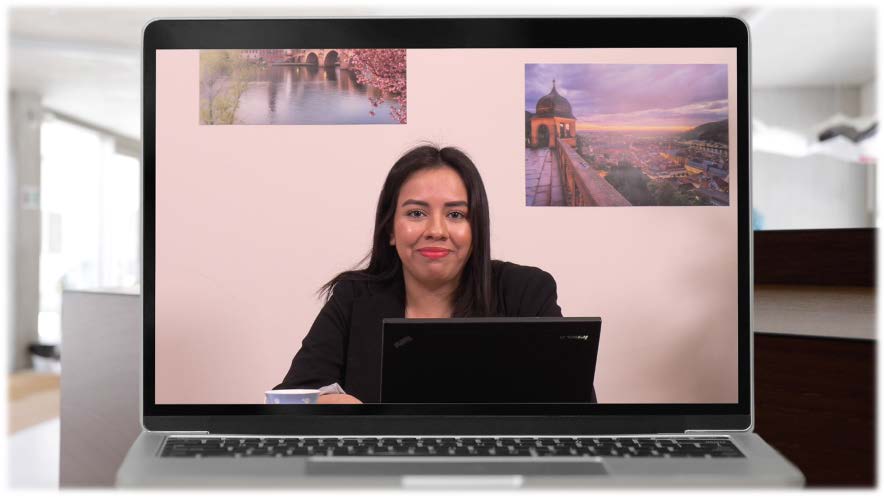
CLILiG TAMPERE 1: „Einstieg & Kennenlernen: Über dich, dein Sprachprofil & dein Schulumfeld“
RUNNING TIME: Appr. 25 Min.
PRIMARY TARGET GROUP: Grade 10 | Sammon keskuslukio Tampere (SAMKE)
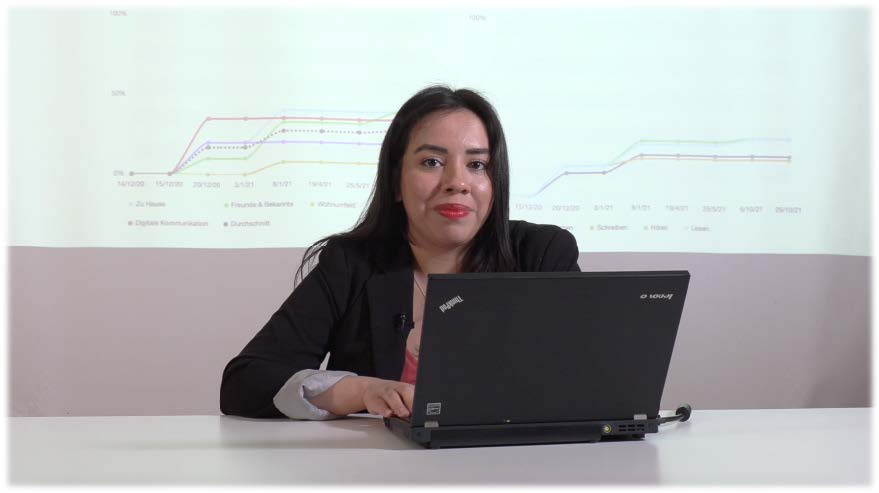
CLILiG TAMPERE 2: „Deutsch in deinem Sprachprofil & dein Wohn- und Schulumfeld im Kurzüberblick“
RUNNING TIME: Appr. 22 Min.
PRIMARY TARGET GROUP: Grade 10 | Sammon keskuslukio Tampere (SAMKE)

CLILiG TAMPERE 3A: „Los geht’s – Flugreise & Einstimmung auf inhaltliche Schwerpunkte“
RUNNING TIME: Appr. 22 Min.
PRIMARY TARGET GROUP: Grade 10 | Sammon keskuslukio Tampere (SAMKE)
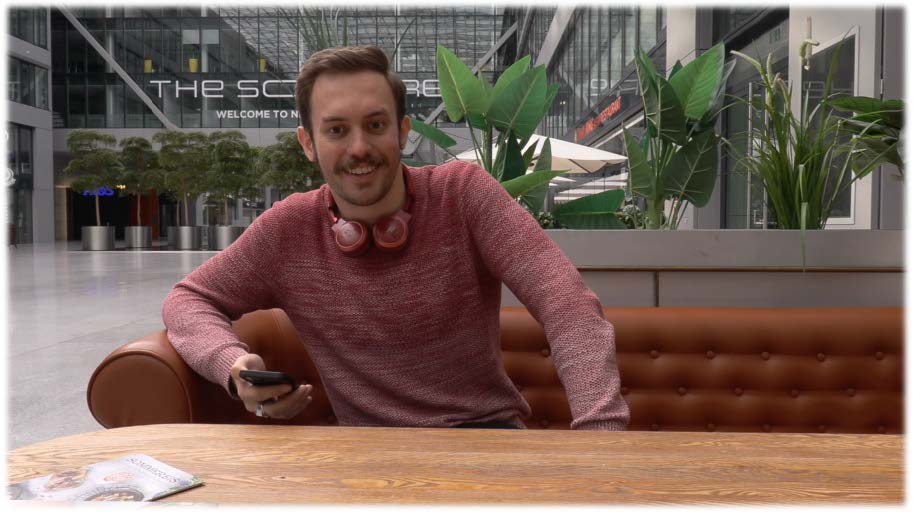
CLILiG TAMPERE 3B: „Unterwegs – Auf der Weiterreise im Zeichen von Musik, deutscher Poplyrik und mehr…“
RUNNING TIME: Appr. 22 Min.
PRIMARY TARGET GROUP: Grade 10 | Sammon keskuslukio Tampere (SAMKE)
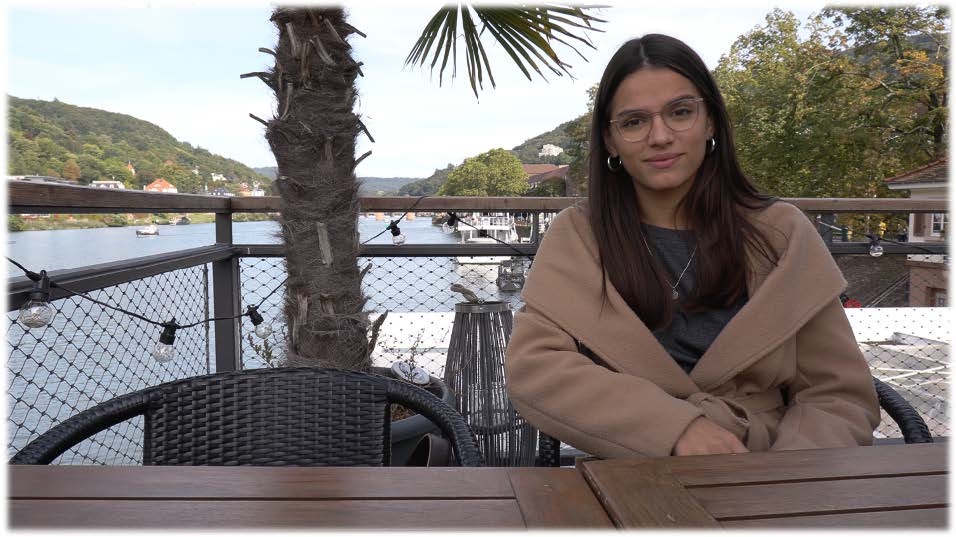
CLILiG TAMPERE 4: „Angekommen – Ersteindrücke & Gespräche zu Essen, Wohnen und Wohlbefinden“
RUNNING TIME: Appr. 45 Min.
PRIMARY TARGET GROUP: Grade 11 | Sammon keskuslukio Tampere (SAMKE)
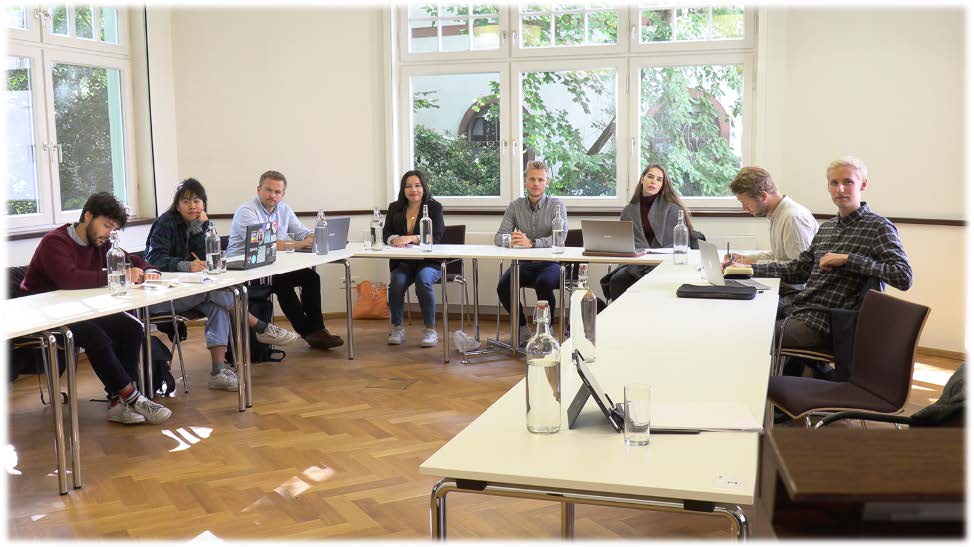
CLILiG TAMPERE 5A: „Gedanken zu Ernährung & Zukunftsperspektiven – Einstieg in den Workshop zu Wohlbefinden &
Nachhaltigkeit “
RUNNING TIME: Appr. 25 Min.
PRIMARY TARGET GROUP: Grade 11 | Sammon keskuslukio Tampere (SAMKE)
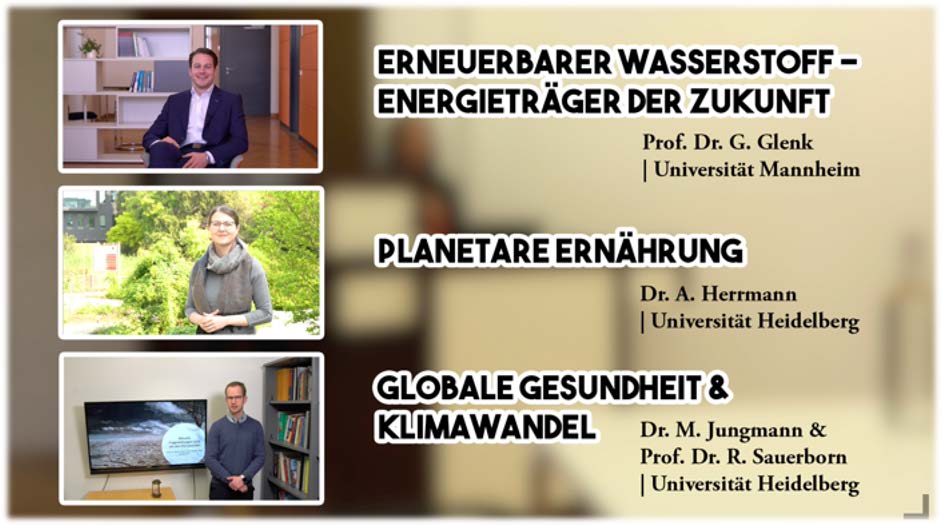
CLILiG TAMPERE 5B: „Wissenschaftlich fundiert – Fachvorträge & Reflexionen zu den Kernthemen des Workshops“
RUNNING TIME: Appr. 26 Min.
PRIMARY TARGET GROUP: Grade 11 | Sammon keskuslukio Tampere (SAMKE)
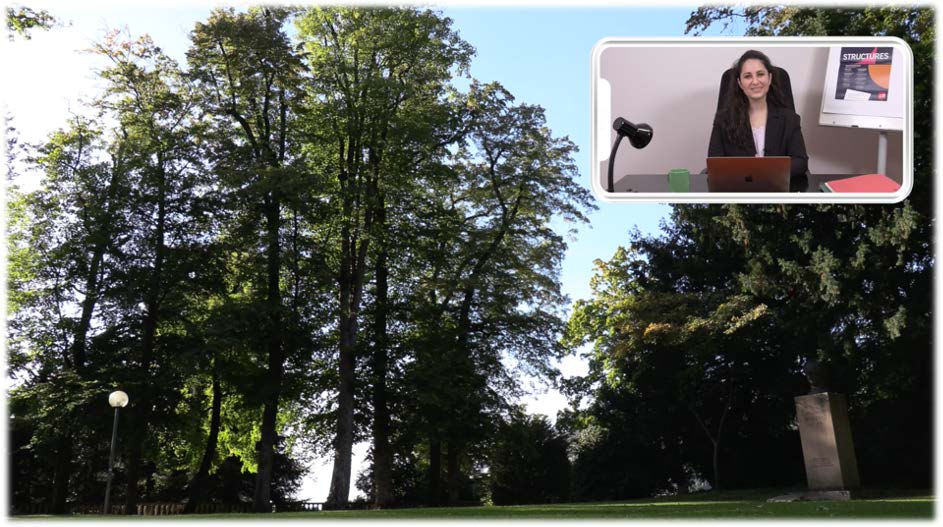
CLILiG TAMPERE 6: „Einzigartig & Entspannt: Online-Lounge zu Studium & Beruf im Heidelberger Schlossgarten“
RUNNING TIME: Appr. 30 Min.
PRIMARY TARGET GROUP: Grade 11 | Sammon keskuslukio Tampere (SAMKE)
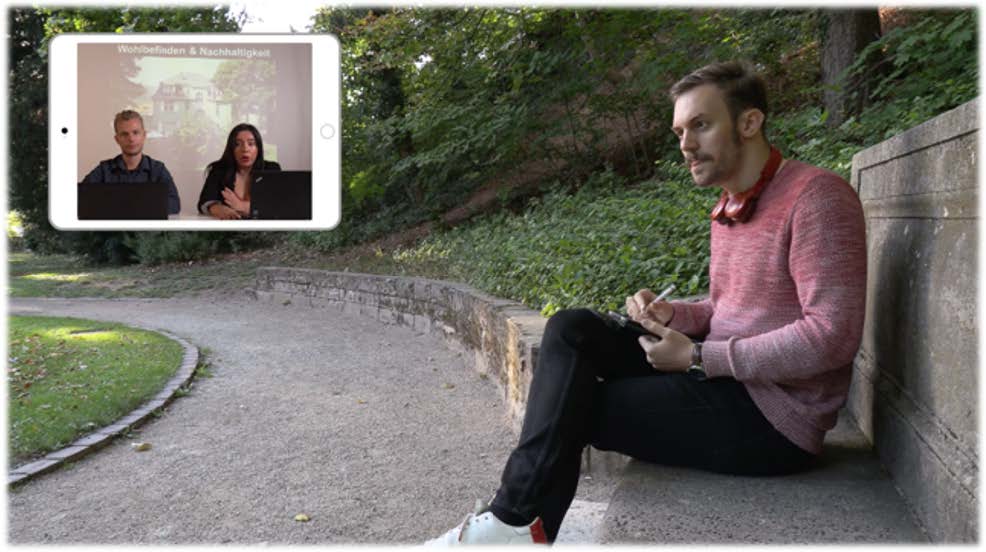
CLILiG TAMPERE 7: „Gut für den Menschen, gut für den Planeten“ – Abschlussgespräche & Ausklang online und naturnah“
RUNNING TIME: Appr. 30 Min.
PRIMARY TARGET GROUP: Grade 11 | Sammon keskuslukio Tampere (SAMKE)
Content and Language Integrated Learning in German (CLILiG) | Curriculum-specific Simulation Series
CLILiG-INSIGHTS | SIAULIAI
- A Series of 6 Language Simulation Units
- Total Running Time: 3 hrs 21 min
- Primary Target Classes: 9 and 10 at “Romuvos” gimnazija in Siauliai, Lithuania
- Curricular Basis: German as a Foreign Language & Geography in the Grades 9 an 10
- Main Content Areas: German “Landeskunde”, German and Lithuanian Landscapes in Contrast (e.g. Rivers, Population,…), Tourism & Economy, Climate & Sustainability, Well-Being

See Video Documentary on the Trial Implementation in Siauliai, Lithuania
Language Profiling and Simulation Journeys “in praxi” – (How) Do they work?
Continuous Language (Learning) Profiling | School- and Curriculum-specific Computer Simulations | Online Analysis and Assessment Solutions
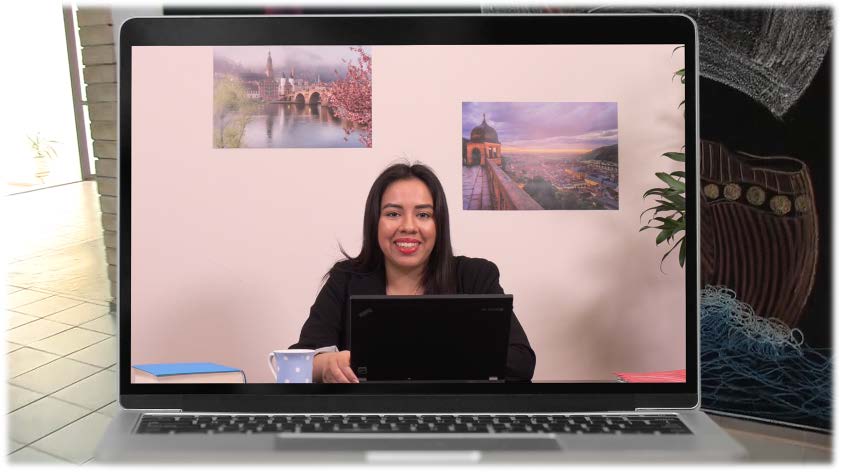
CLILiG SIAULIAI 1: „Einstieg & Kennenlernen: Über dich, dein Sprachprofil & dein Schulumfeld“
RUNNING TIME: Appr. 36 Min.
PRIMARY TARGET GROUP: Grade 9 | “Romuvos” Gimnazija Siauliai
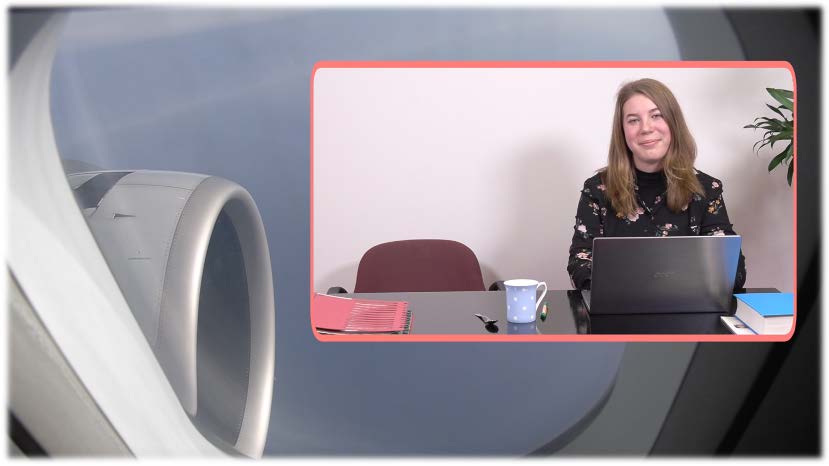
CLILiG SIAULIAI 2: „Los geht’s – Flugreise & Einstimmung auf fachinhaltliche Schwerpunkte“
RUNNING TIME: Appr. 47 Min.
PRIMARY TARGET GROUP: Grade 9 | “Romuvos” Gimnazija Siauliai
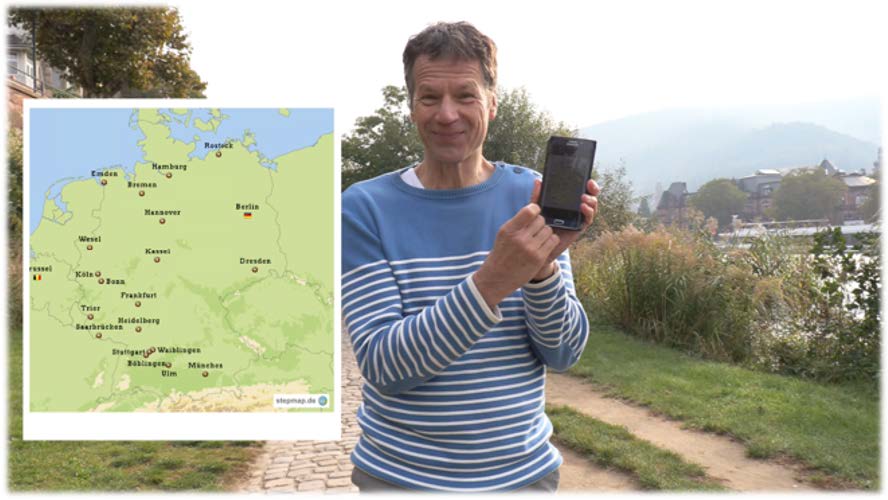
CLILiG SIAULIAI 3: „Angekommen – Gespräche zu Landeskunde & Online-Recherchen unterwegs“
RUNNING TIME: Appr. 40 Min.
PRIMARY TARGET GROUP: Grade 9 |”Romuvos” Gimnazija Siaulai
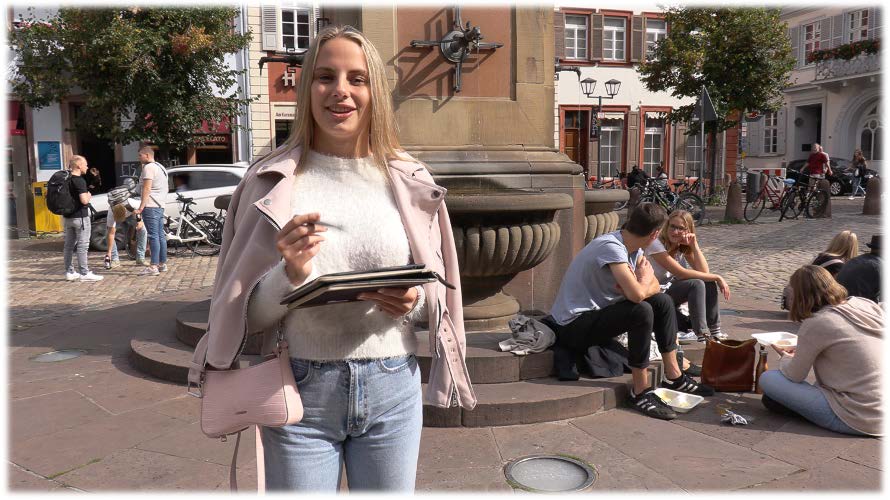
CLILiG SIAULIAI 4: „Über die Umwelt im grünen Umfeld – im Fokus: Jahreszeiten und Klima & Nachhaltigkeit und Wirtschaft“
RUNNING TIME: Appr. 35 Min.
PRIMARY TARGET GROUP: Grade 10 | “Romuvos” Gimnazija Siauliai
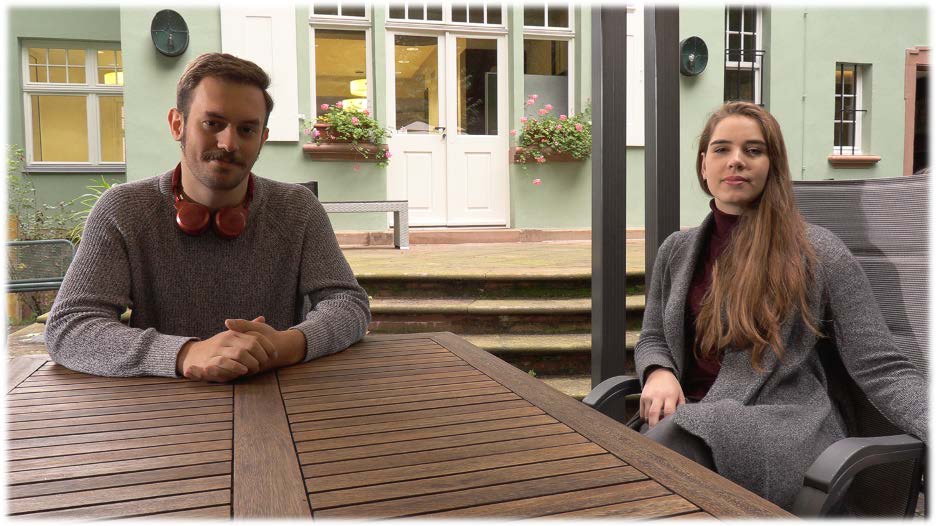
CLILiG SIAULIAI 5: „Zu Gast im Workshop zu „Wohlbefinden & Nachhaltigkeit“ – Im Schwerpunkt: Der Klimawandel“
RUNNING TIME: Appr. 46 Min.
PRIMARY TARGET GROUP: Grade 10 | “Romuvos” Gimnazija Siauliai
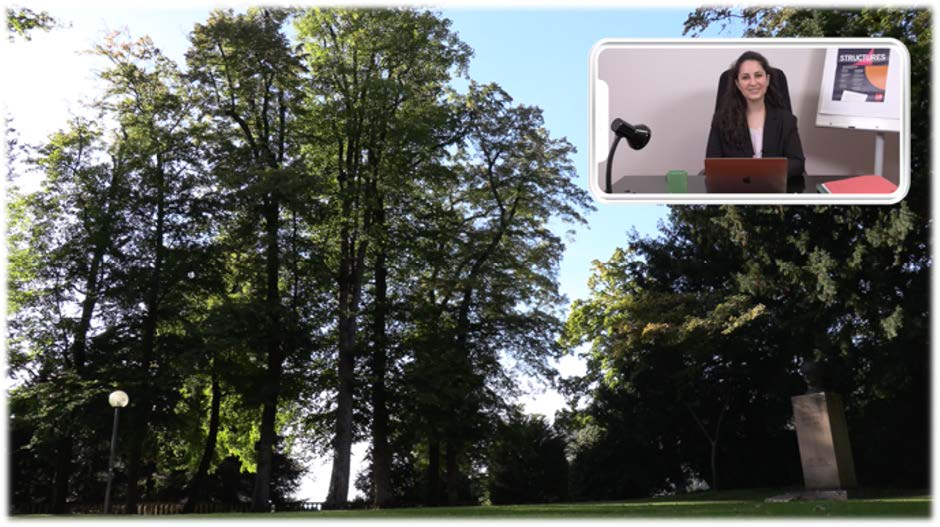
CLILiG SIAULIAI 6: „Einzigartig & Entspannt: Online-Lounge zu Studium & Beruf im Heidelberger Schlossgarten“
RUNNING TIME: Appr. 17 Min.
PRIMARY TARGET GROUP: Grade 10 | “Romuvos” Gimnazija Siauliai
Content and Language Integrated Learning in German (CLILiG) | Curriculum-specific Simulation Series
CLILiG-INSIGHTS | WARSZAWA
- A Series of 6 Language Simulation Units
- Total Running Time: 4 hrs 5 min
- Target Classes: 9 and 10 at LO 46 Warszawa in Warsaw, Poland
- Curricular Basis: German as a Foreign Language & History and Geography in the Grades 9 and 10
- Main Content Areas: Stone Age, Bronze Age and Celtic Times; Roman & Greek Mythology, Astronomy & Planetary System

See Video Documentary on the Trial Implementation in Warsaw, Poland
Language Profiling and Simulation Journeys “in praxi” – (How) Do they work?
Continuous Language (Learning) Profiling | School- and Curriculum-specific Computer Simulations | Online Analysis and Assessment Solutions
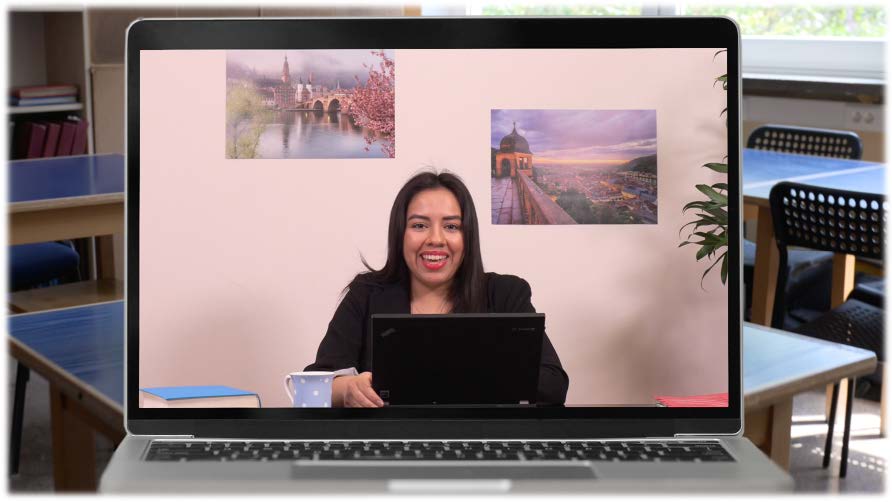
CLILiG WARSZAWA 1: „Einstieg & Kennenlernen: Über dich, dein Sprachprofil & dein Schulumfeld“
RUNNING TIME: Appr. 36 Min.
PRIMARY TARGET GROUP: Grade 9 | LO 46 Warszawa
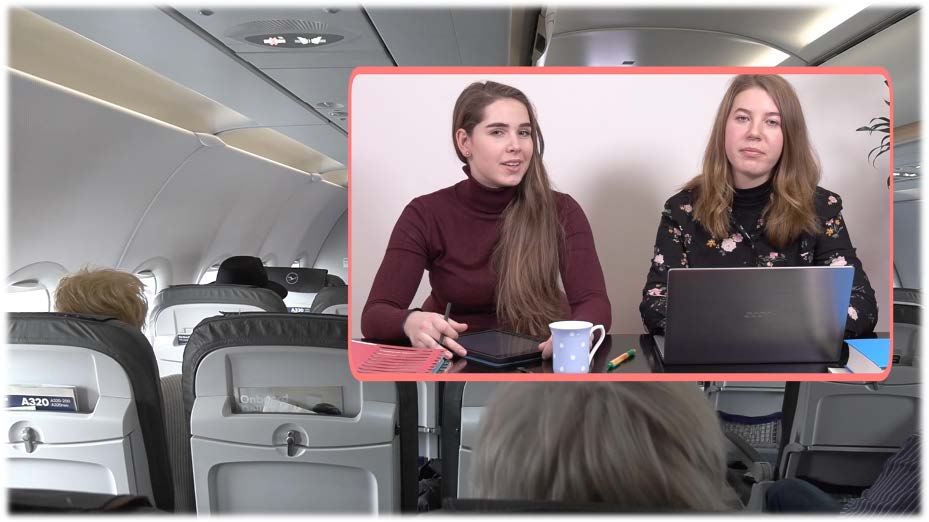
CLILiG WARSZAWA 2: „Los geht’s – Flugreise & Einstimmung auf fachinhaltliche Schwerpunkte“
RUNNING TIME: Appr. 48 Min.
PRIMARY TARGET GROUP: Grade 9 | LO 46 Warszawa
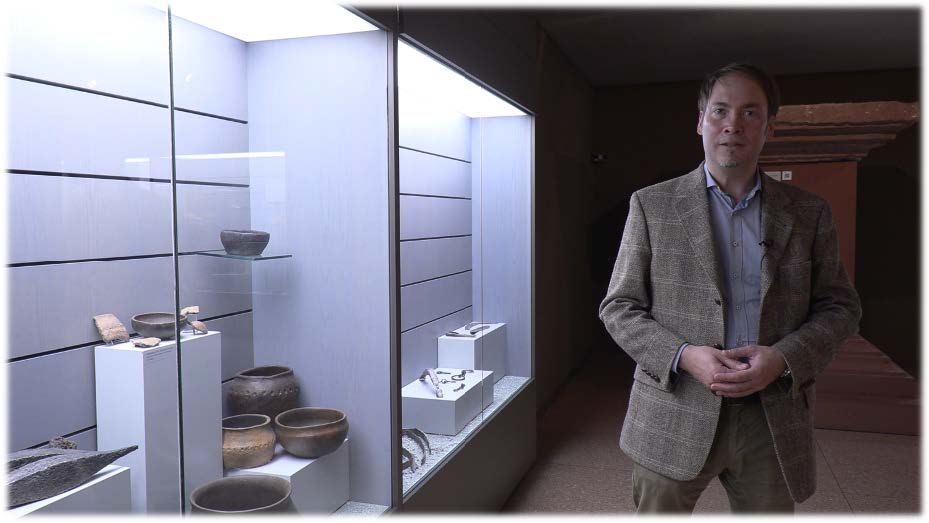
CLILiG WARSZAWA 3: „Die Zeitreise beginnt – zu Besuch in der Steinzeit und der Welt der Kelten“
RUNNING TIME: Appr. 40 Min.
PRIMARY TARGET GROUP: Grade 9 | LO 46 Warszawa
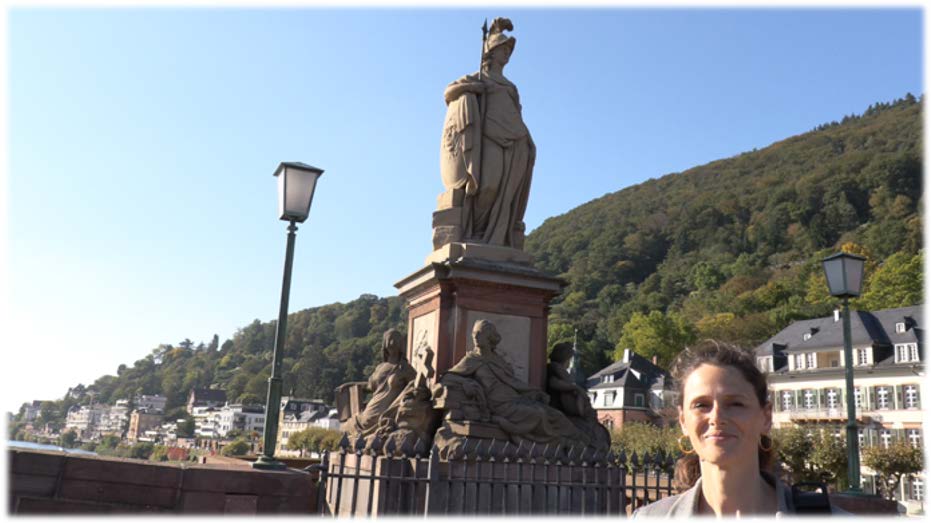
CLILiG WARSZAWA 4: „Griechische & römische Gottheiten – Spurensuche und Brückenschläge zur Astronomie“
RUNNING TIME: Appr. 32 Min.
PRIMARY TARGET GROUP: Grade 10 | LO 46 Warszawa
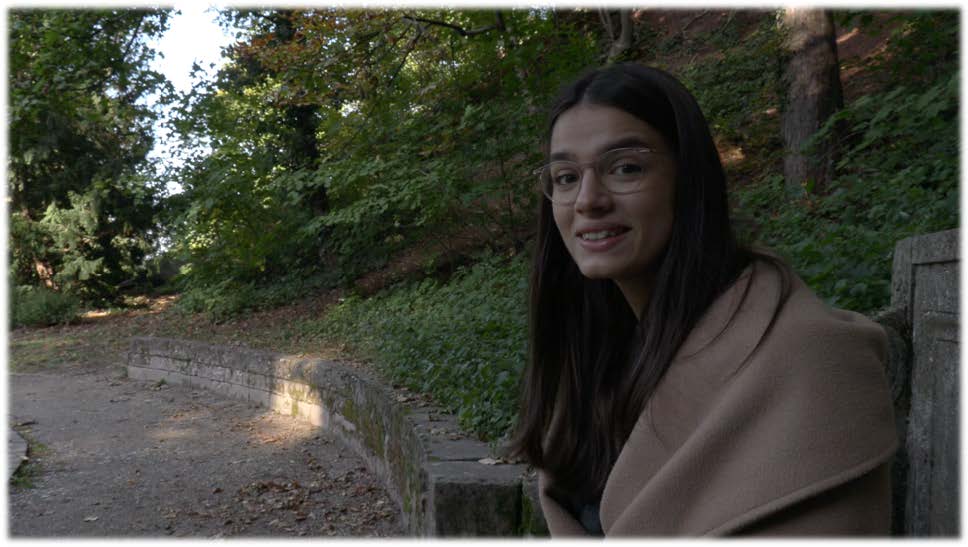
CLILiG WARSZAWA 5: „Über die Umwelt im grünen Umfeld – im Fokus: Jahreszeiten und Klima & Nachhaltigkeit und Wirtschaft“
RUNNING TIME: Appr. 35 Min.
PRIMARY TARGET GROUP: Grade 10 | LO 46 Warszawa
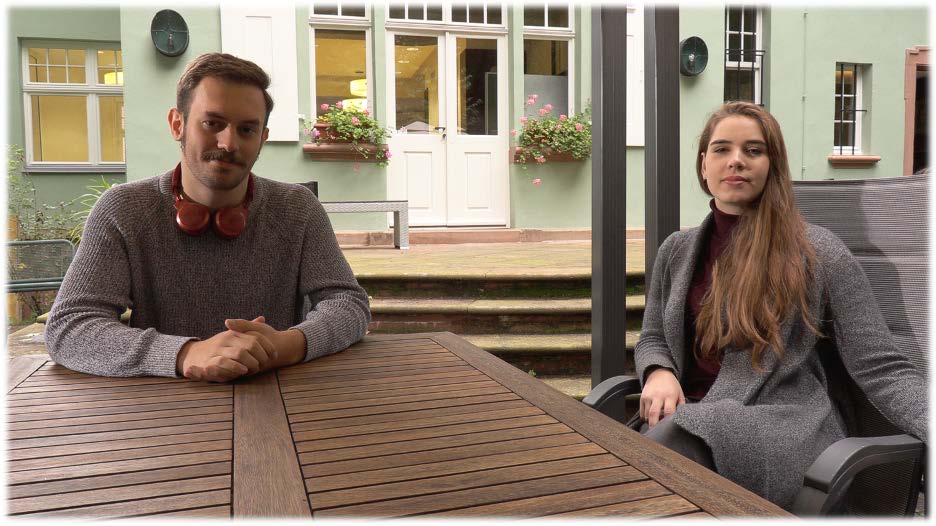
CLILiG WARSZAWA 6: „Zu Gast im Workshop zu „Wohlbefinden & Nachhaltigkeit“ – Im Schwerpunkt: Der Klimawandel“
RUNNING TIME: Appr. 54 Min.
PRIMARY TARGET GROUP: Grade 10 | LO 46 Warszawa
Content and Language Integrated Learning in German (CLILiG) | Curriculum-specific Simulation Series
CLILiG-INSIGHTS | HELSINKI
- A Series of 6 Language Simulation Units
- Total Running Time: 5 hrs 43 min
- Primary Target Classes: 8 and 9 at Deutsche Schule Helsinki (DSH) in Helsinki, Finland
- Curricular Basis: German as a Foreign / Second Language & History and STEAM Subjects in the Grades 8 and 9
- Main Content Areas: Analyzing Architectural Styles of the Past in Germany, Applying STEAM Knowledge and Discovering Traces of Renowned STEAM Scholars – in Online-Interviews, Workshop-settings and during Sightseeing-Walks,…

Have a Peek into this Simulation Series
German as a Foreign / Second Language & History & STEAM Subjects in the Grades 8 and 9
Analyzing Architectural Styles of the Past in Germany | Applying STEAM Knowledge and Discovering Traces of Renowned STEAM Scholars – in Online-Interviews, Workshop-Settings, during Sightseeing-Walks and more…
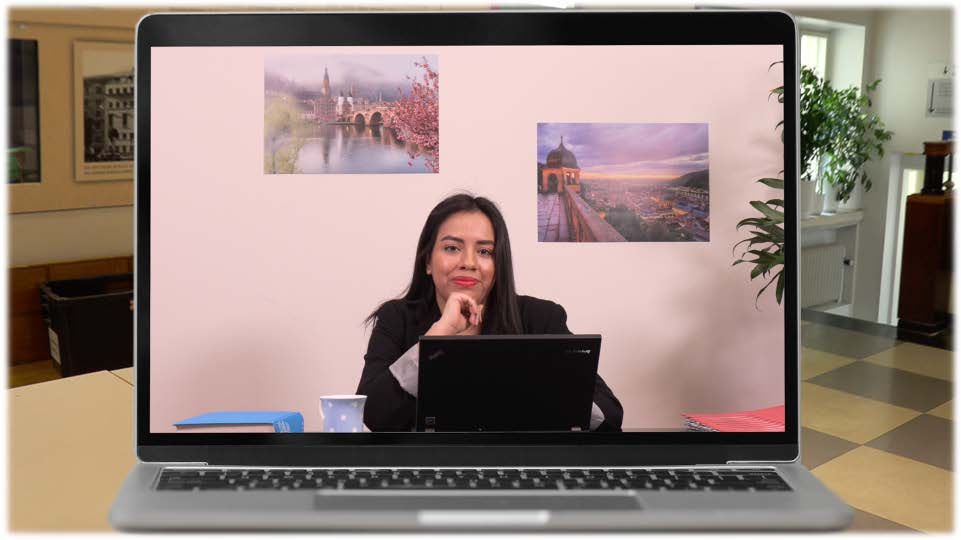
CLILiG HELSINKI 1: „Einstieg & Kennenlernen: Über dich, dein Sprachprofil & dein Schulumfeld“
RUNNING TIME: Appr. 45 Min.
PRIMARY TARGET GROUP: Grade 8 | Deutsche Schule Helsinki (DSH)
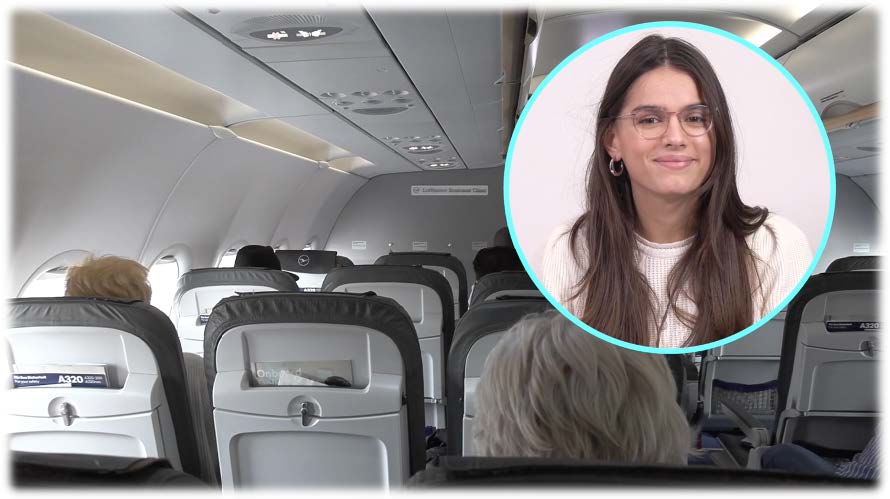
CLILiG HELSINKI 2: „Los geht’s – Flugreise & Einstimmung auf fachinhaltliche Schwerpunkte“
RUNNING TIME: Appr. 57 Min.
PRIMARY TARGET GROUP: Grade 8 | Deutsche Schule Helsinki (DSH)
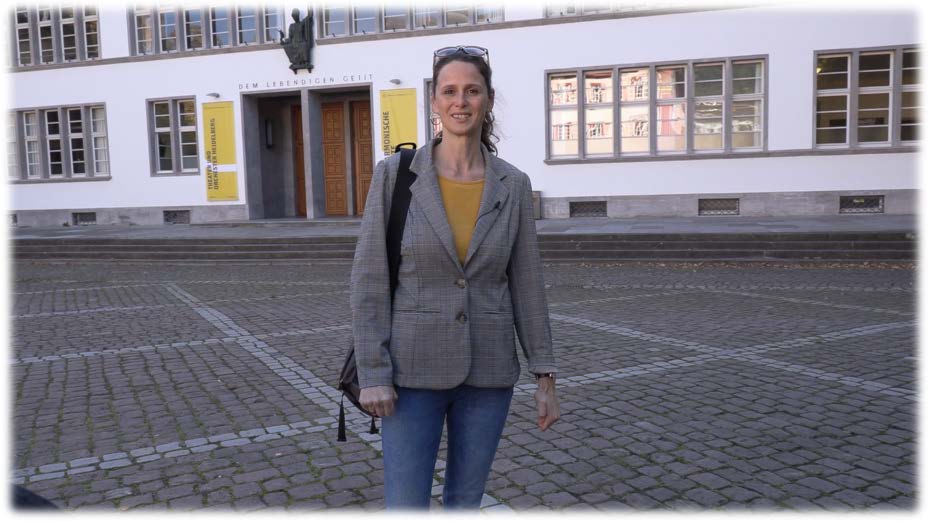
CLILiG HELSINKI 3: „Professionell durch Heidelberg: Baustile, Besonderheiten & Geschichtsspuren“
RUNNING TIME: Appr. 40 Min.
PRIMARY TARGET GROUP: Grade 8 | Deutsche Schule Helsinki (DSH)
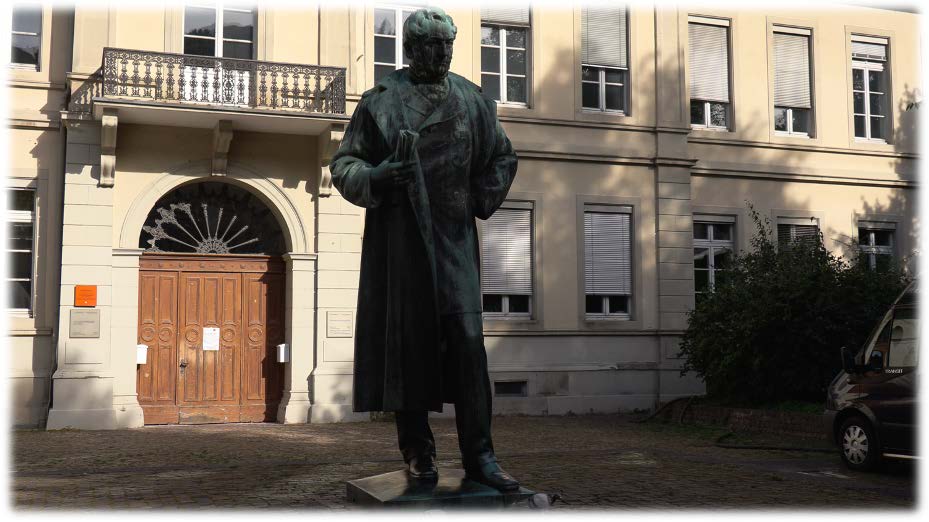
CLILiG HELSINKI 4: „Wissenschaftliche Begegnungen – in der Stadt und im Workshop zu Wohlbefinden & Nachhaltigkeit“
RUNNING TIME: Appr. 50 Min.
PRIMARY TARGET GROUP: Grade 9 | Deutsche Schule Helsinki (DSH)
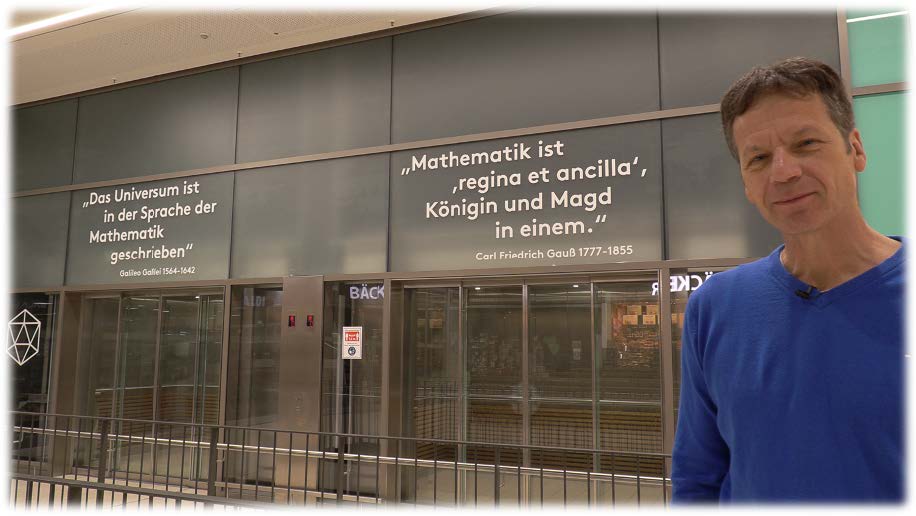
CLILiG HELSINKI 5: „Auf dem Universitäts-Campus: Kurzexkurse in Mathematik & Biologie“
RUNNING TIME: Appr. 55 Min.
PRIMARY TARGET GROUP: Grade 9 | Deutsche Schule Helsinki (DSH)
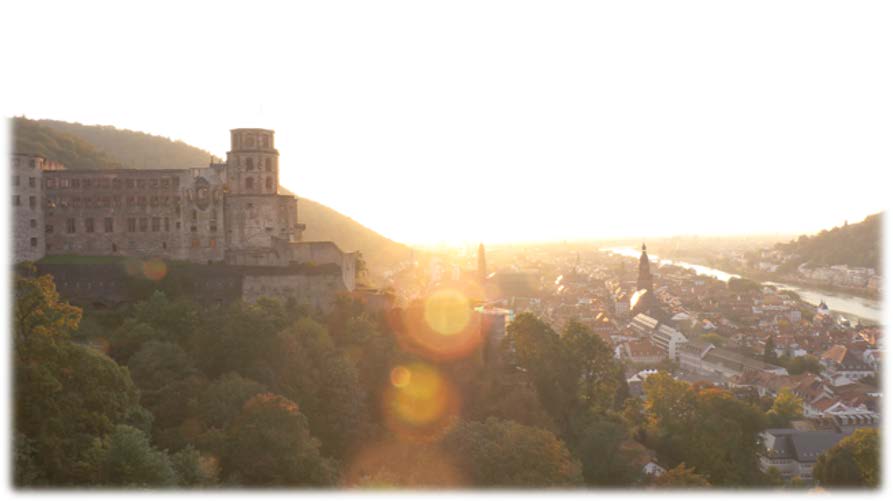
CLILiG HELSINKI 6: „Ausklang der Simulationsreise auf dem Heidelberger Schloss – im Zeichen von Geschichte, Kunst und
Mathematik“
RUNNING TIME: Appr. 70 Min.
PRIMARY TARGET GROUP: Grade 9 | Deutsche Schule Helsinki (DSH)
English as a Target and Working Language in the Context of Cross-curricular Language Education / CLIL and Bi-/Multilingual Instruction
EAC | English Across Curriculum
- A Series of 8 Language Simulation Units
- Primary Target Groups: Learners of English as a Second / Foreign Language from Grade 9/10 onwards, with TL Proficiency Level ideally at B1 (CEFR) and above
- Curricular Basis: Framework Curriculum of English as a Foreign Language in Finnish General Upper Secondary Schooling, incl. nwew Openings towards Cross-Curricular and Subject-specific Use of English
- Main Content Areas: English Medium of Communication across diverse Thematic Areas such as Social Integration, Well-being, Sustainable Development, etc.

“EAC in the Making”: Insights into the Production Process in just 60 seconds.
Video Documentation of the Production Process in the Framework of the R & D Project “ProfiLang-UP-ACROSS”, in co-operation with the Heidelberg University, Germany, the International Theatre Group of the Heidelberg University (IDeFiX) and the International Academic Forum Heidelberg (IWH), co-financed through the Finnish National Agency for Education (OPH).
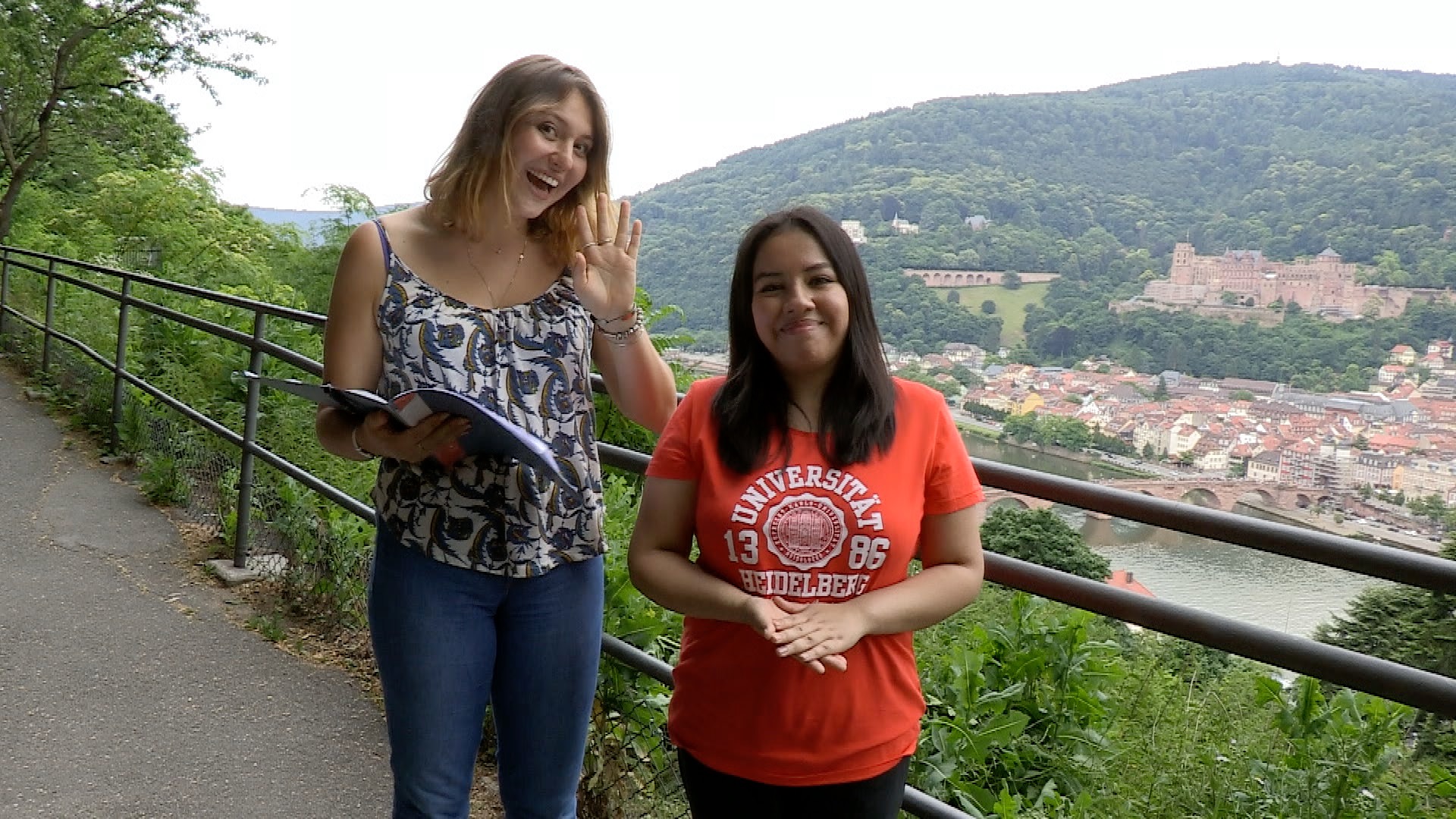
English Across Curriculum 1: “Uncovering Language Learning Landscapes”
RUNNING TIME: Appr. 20 Min.
PRIMARY TARGET AUDIENCE: Learners of English as a foreign / second language from grade 9 / 10 onwards, with any first language and ideally with target language proficiency level at B1 and above (CEFR).

English Across Curriculum 2: „Preparations for the International Youth Convention (IYC)”
RUNNING TIME: Appr. 40 Min.
PRIMARY TARGET AUDIENCE: Learners of English as a foreign / second language from grade 9 / 10 onwards, with any first language and ideally with target language proficiency level at B1 and above (CEFR).
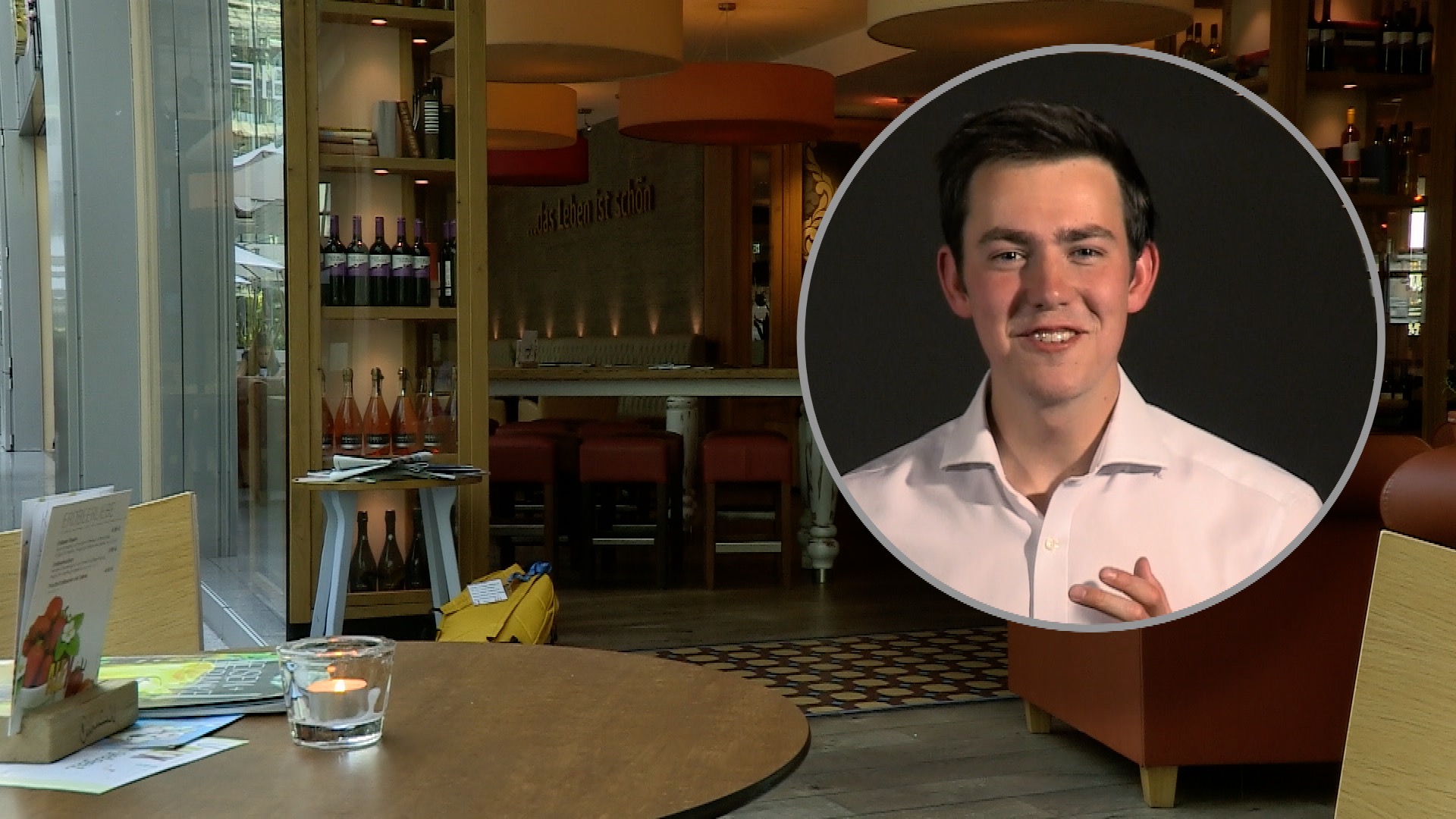
English Across Curriculum 3: „Travelling Adventures & IYC Content Issues”
RUNNING TIME: Appr. 45 Min.
PRIMARY TARGET AUDIENCE: Learners of English as a foreign / second language from grade 9 / 10 onwards, with any first language and ideally with target language proficiency level at B1 and above (CEFR).

English Across Curriculum 4: „Arrival at the Convention Venue & Immersion into IYC Topics“
RUNNING TIME: Appr. 25 Min.
PRIMARY TARGET AUDIENCE: Learners of English as a foreign / second language from grade 10/11 onwards, with any first language and ideally with target language proficiency level at B1+ and above (CEFR).

English Across Curriculum 5: “IYC-Sessions – In Focus: Physical Well-being”
RUNNING TIME: Appr. 25 Min.
PRIMARY TARGET AUDIENCE: Learners of English as a foreign / second language from grad 10/11 onwards, with any first language and ideally with target language proficiency level at B1+ and above (CEFR).
“EAC – English Across Curriculum”
Authored and piloted in the framework of the R & D Project “ProfiLang-UP-ACROSS”, in co-operation with the Heidelberg University, Germany, the International Theatre Group of the Heidelberg University (IDeFiX) and the International Academic Forum Heidelberg (IWH), generously co-financed through the Finnish National Agency for Education (OPH).
German as a Target Language in Cross-curricular Language Education – as a “Bridge-builder” towards CLILiG and Bi-/Multilingual Instruction
DaF+ | Deutsch als Fremdsprache – fächerübergreifend
- A Series of 3 Simulation Units
- Primary Target Groups: Learners of German as a Second / Foreign Language from Grade 9/10 onwards, with any L1, TL Proficiency Level ideally from A2+ (CEFR)
- Curricular Basis: A Mixture of International Framework Curricula for Secondary Schooling with Openings towards Cross-Curricular and Subject-specific Use of Additional Languages
- Main Content Areas: Environmental Awareness, Sustainable Development, Plurilingualism & Interculturality, etc.

“DaF+ – Building bridges from “DaF” towards CLILiG“
DaF+ – A Simulation Series demonstrating the Features & Added Value of CLILiG
Authored, produced and introduced in the framework of the R & D Project “CLILiG-SCAN“, in co-operation with the Heidelberg University, Germany, the International Theatre Group of the Heidelberg University (IDeFiX), and in conjunction with the University of Tromsö (UIT) and the University of Gothenburg (GU), generously co-financed through the Nordic Council of Ministers | Nordplus-Horizontal.
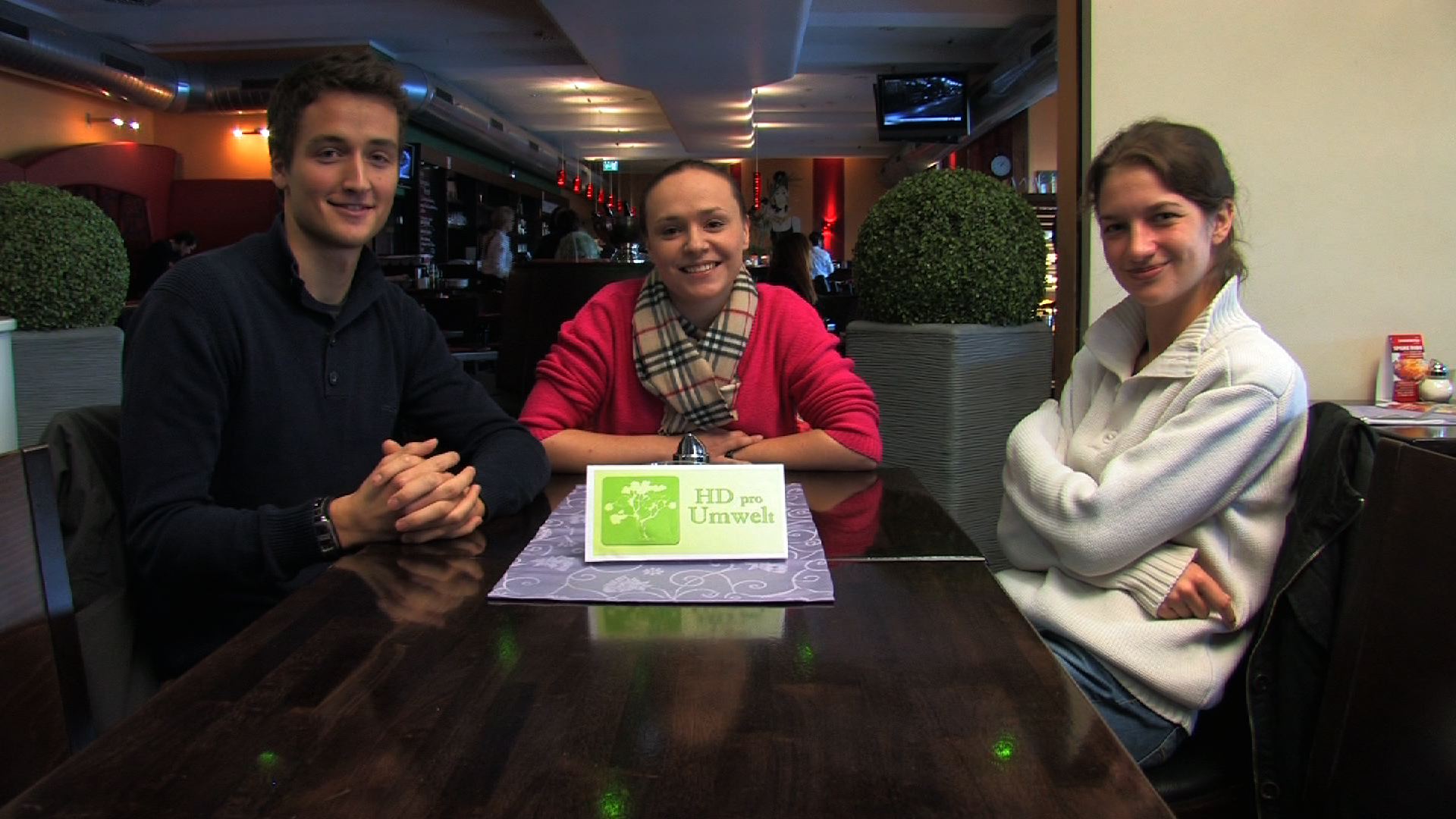
Deutsch als Fremdsprache – fächerübergreifend: Umweltschutz international | Folge 1: “Ankunft und Einstimmung”
RUNNING TIME: Appr. 45 Min.
PRIMARY TARGET AUDIENCE: Learners of German as a foreign / second language from grade 9 / 10 onwards, with any first language and ideally with target language proficiency level at A2+ and above (CEFR).
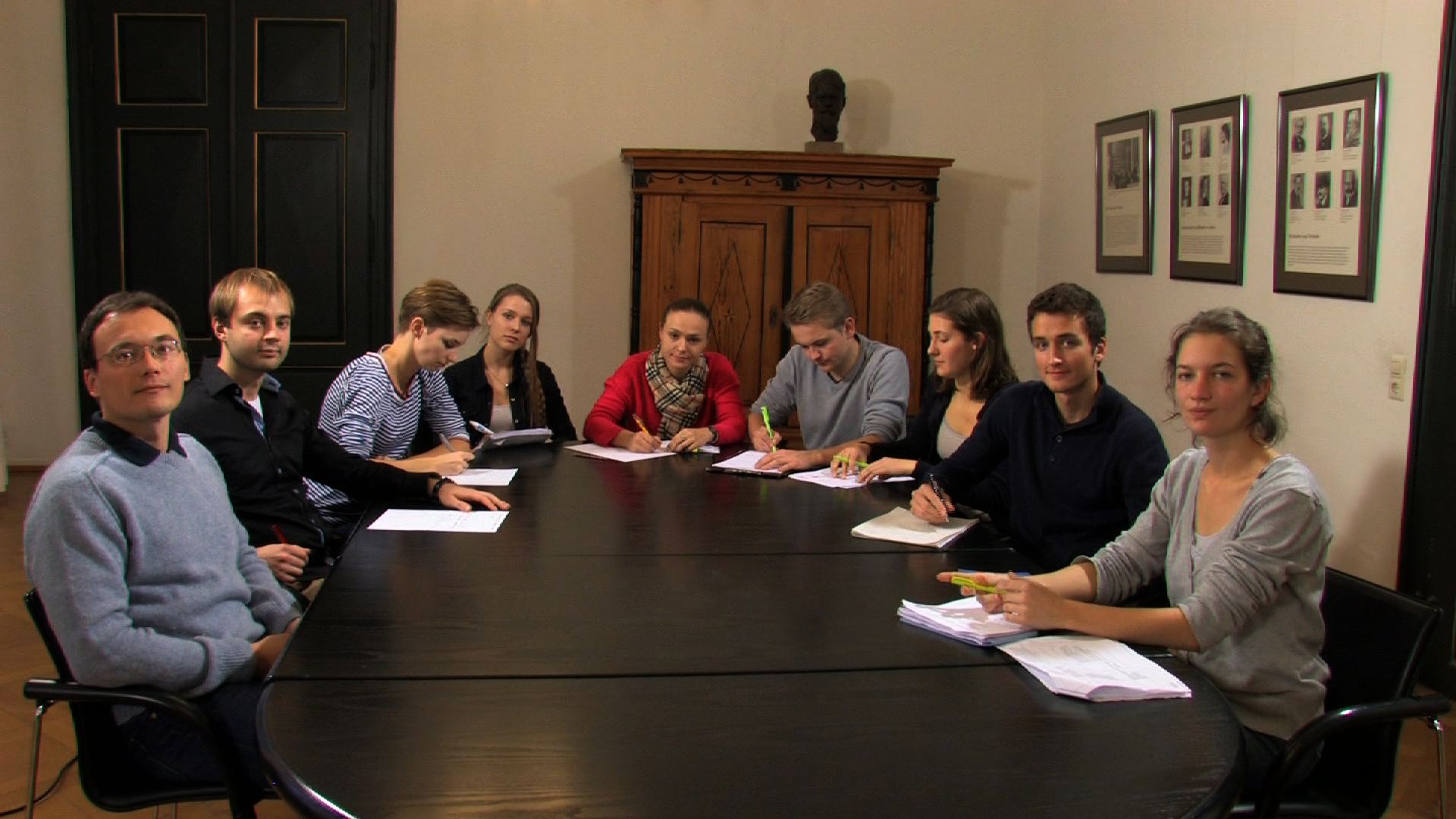
Deutsch als Fremdsprache – fächerübergreifend: Umweltschutz international | Folge 2: “Präsentationen und Reflexionen zum Workshop-Thema”
RUNNING TIME: Appr. 35 Min.
PRIMARY TARGET AUDIENCE: Learners of German as a foreign / second language from grade 9 / 10 onwards, with any first language and ideally with target language proficiency level at A2+ and above (CEFR).
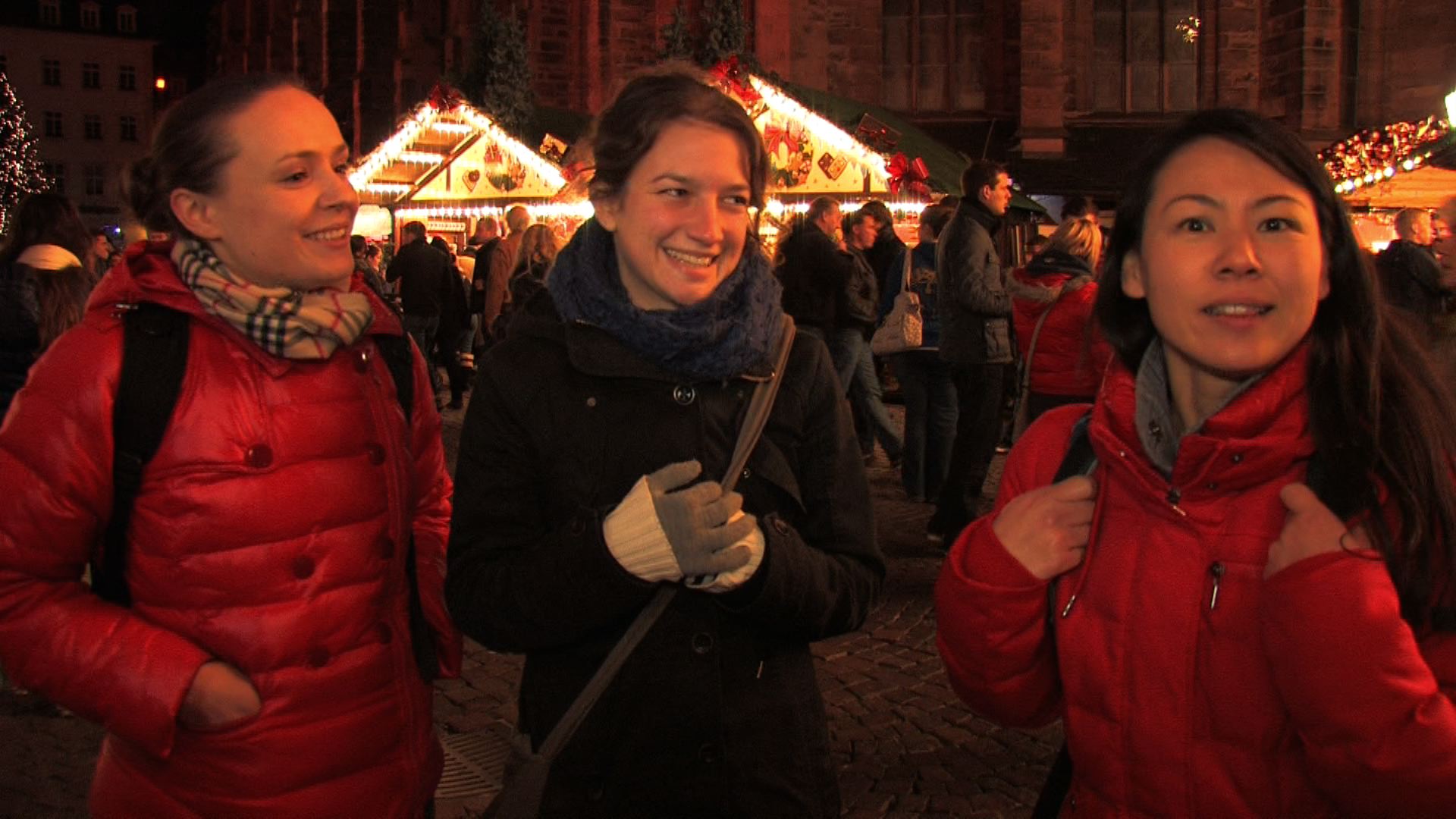
Deutsch als Fremdsprache – fächerübergreifend: Umweltschutz international | Folge 3: “Mehrsprachige Begegnungen – In den Hausaufgaben und auf dem Weihnachtsmarkt”
RUNNING TIME: Appr. 30 Min.
PRIMARY TARGET AUDIENCE: Learners of German as a foreign / second language from grade 9 / 10 onwards, with any first language and ideally with target language proficiency level at A2+ and above (CEFR).
Profiling Communicative Performance in German as a Foreign Language: CLILiG-type Language Use at School
ProfiDaF II | Zielsprache Deutsch im schulischen Kontext
- A Series of 3 Simulation Units
- Primary Target Groups: Learners of German as a Foreign Language from Grade 8/9 on, with any L1, TL Proficiency Level ideally A2 (CEFR) and above
- Curricular Basis: A Mixture of International Framework Curricula for Secondary Schooling with Openings towards Cross-Curricular and Subject-specific Use of non L1-Languages
- Main Content Areas: Educational Settings, “Mini-Excursions” into Languages, Geography and Mathematics

“ProfiDaF II – Simulative Excursions into Language Use in Educational Settings”
ProfiDaF II – Simulative Immersion into Language Use at School – with “Mini-Excursions” into CLILiG-type Discourse in various School Subjects
Introduced during the R & D Project “ProfiDaF II“, in conjunction with the Heidelberg University, Germany, the International Theatre Group of the Heidelberg University (IDeFiX) and the Goethe-Institut Finland, and generously co-financed through the Federal Foreign Office of the Republic of Germany (Auswärtiges Amt)
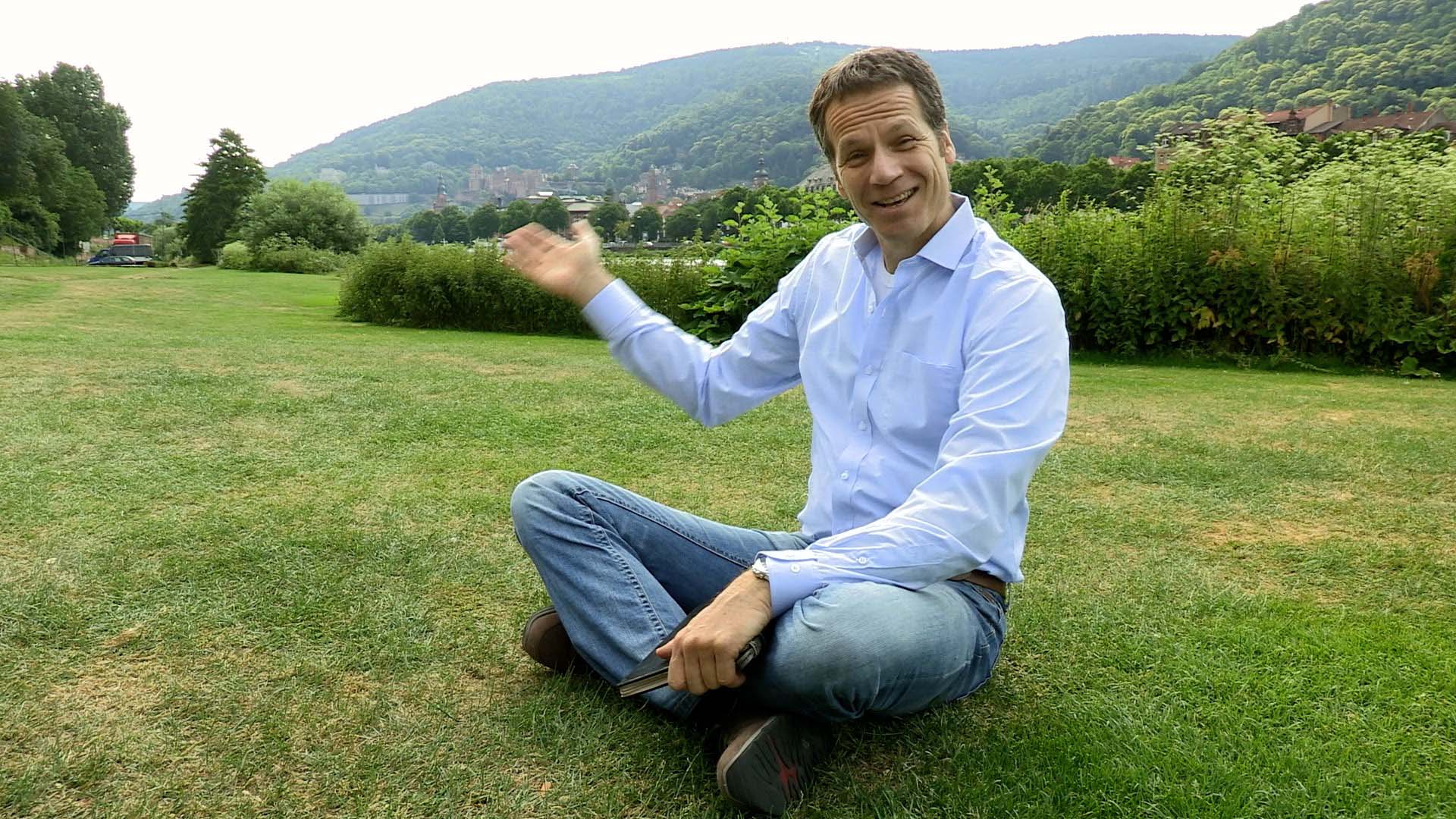
ProfiDaF II: Schulbesuch in Deutschland | Folge 1: “Vorbereitungen und Ankunft”
RUNNING TIME: Appr. 60 Min.
PRIMARY TARGET AUDIENCE: Learners of German as a foreign / second language from grade 8 / 9 onwards, with any first language and ideally with target language proficiency level at A2 and above (CEFR).
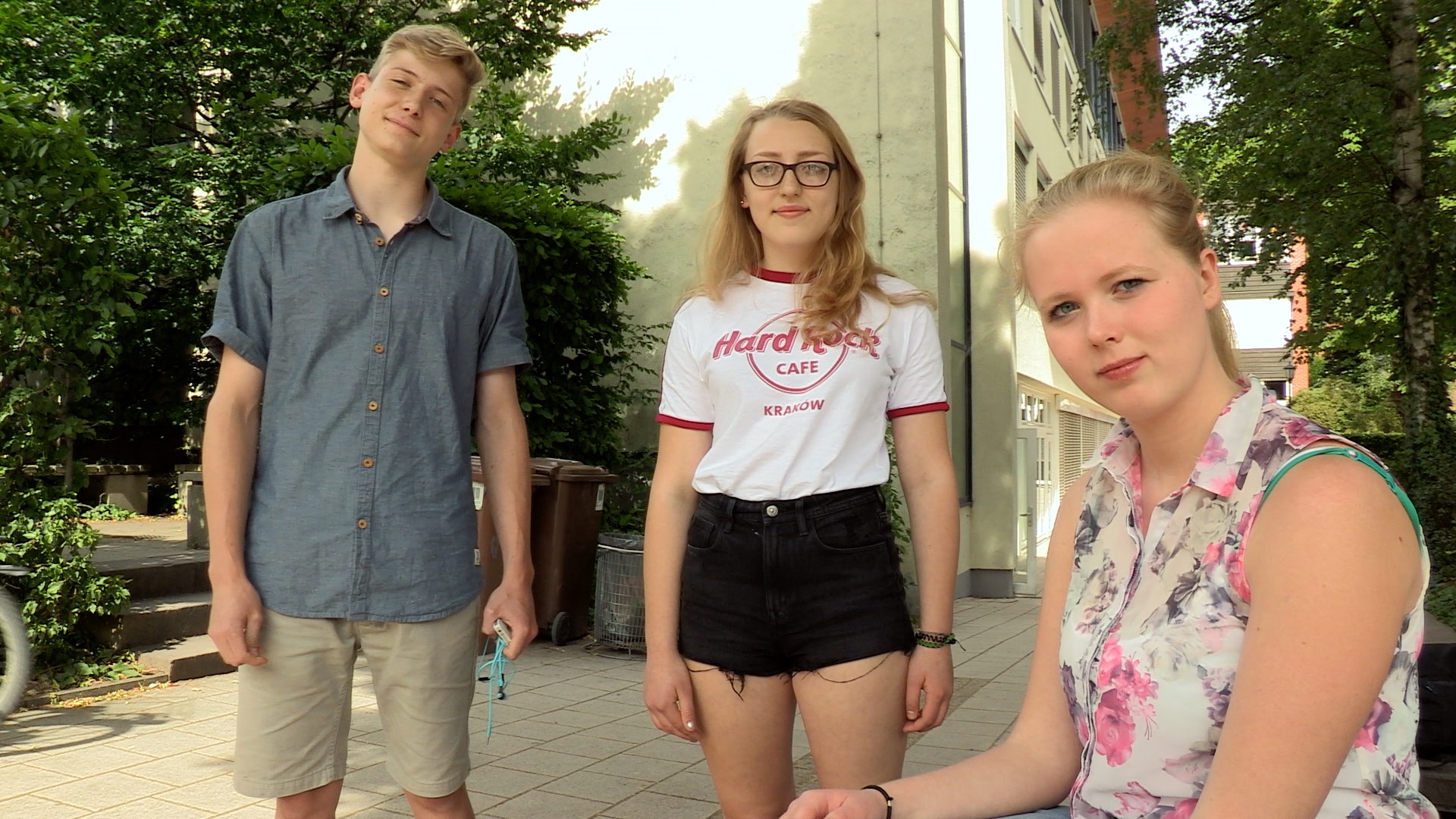
ProfiDaF II: Schulbesuch in Deutschland | Folge 2: “Gespräche und Kennenlernen im Schulhof”
RUNNING TIME: Appr. 15 Min.
PRIMARY TARGET AUDIENCE: Learners of German as a foreign / second language from grade 9 / 10 onwards, with any first language and ideally with target language proficiency level at A2+ and above (CEFR).
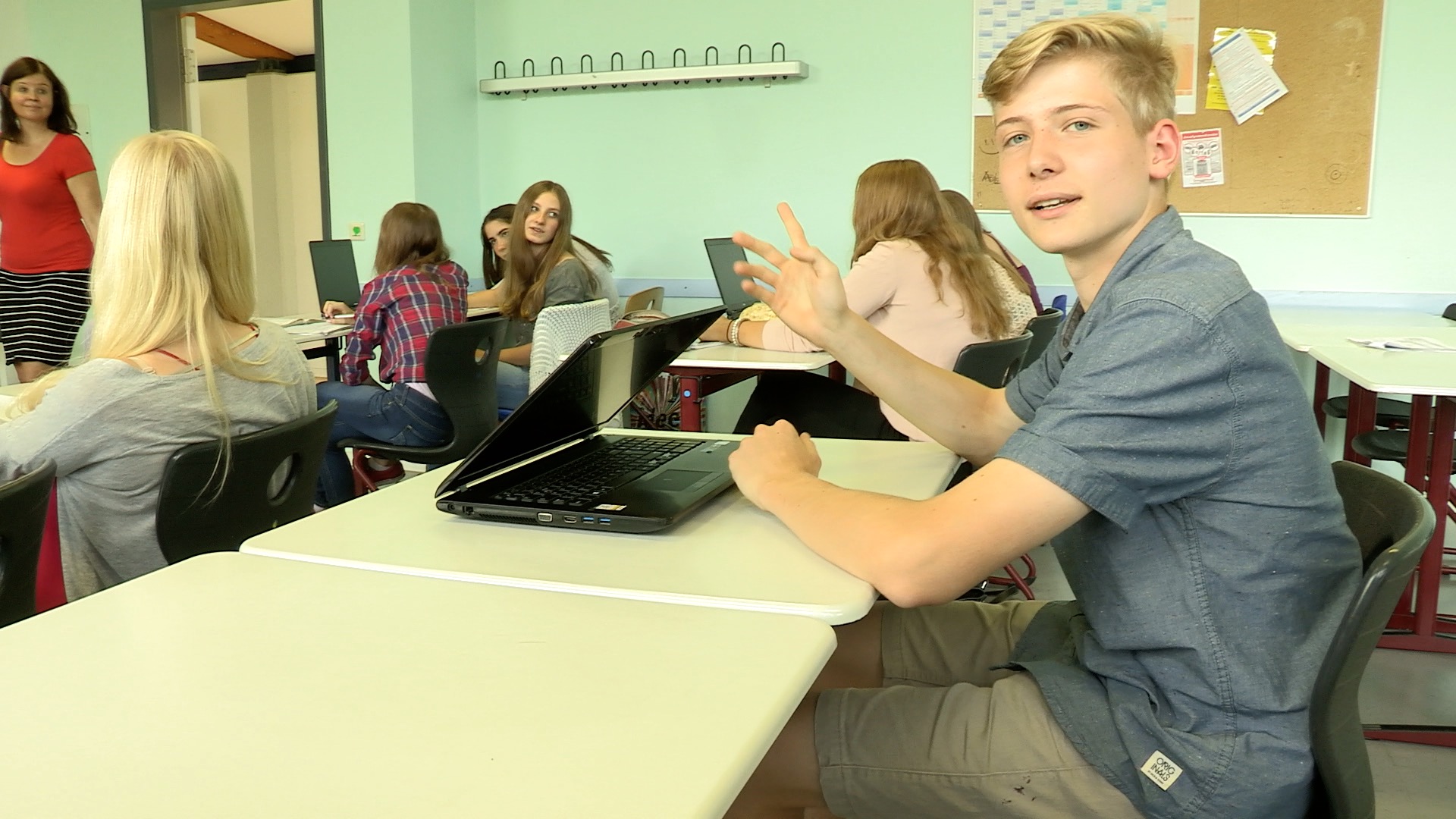
ProfiDaF II: Schulbesuch in Deutschland | Folge 3: Auf in den Unterricht – Fächerübergreifende Experimente”
RUNNING TIME: Appr. 60 Min.
PRIMARY TARGET AUDIENCE: Learners of German as a foreign / second language from grade 9 / 10 onwards, with any first language and ideally with target language proficiency level at A2+/B1 and above (CEFR).
Profiling Communicative Performance in German as a Foreign Language: Immersive Insights into a CLILiG-Setting at University-Level
ProfiDaF I | Immersion im universitären Kontext
- A Series of 6 Simulation Units
- Primary Target Groups: Learners of German as a Foreign Language from Grade 11/12, TL Level ideally at B1 or above
- Curricular Basis: A Mixture of International Framework Curricula for German as a Foreign Language (Secondary Schooling)
- Main Content Areas: Educational Settings, Formal and Informal Target Language Use, International Language Course at a German University, including Insights & Participation in Authentic Lectures and Seminars.

“ProfiDaF I – Immersion Journey into a University Context in Germany
ProfiDaF I – Simulative Immersion into a German-speaking University Context – including Insights & Participation in an International Languages Course, Authentic Lectures & multicultural Leisure Activities
Introduced during the R & D Project “ProfiDaF I“, in conjunction with the Heidelberg University, Germany, the International Theatre Group of the Heidelberg University (IDeFiX) and the Goethe-Institut Finland, and generously co-financed through the Federal Foreign Office of the Republic of Germany (Auswärtiges Amt)

ProfiDaF I | Folge 1: “Sprachkurs in Sicht”
RUNNING TIME: Appr. 40 Min.
PRIMARY TARGET AUDIENCE: Learners of German as a foreign / second language from grade 11/12 onwards, with any first language and ideally with target language proficiency level at A2 and above (CEFR).

ProfiDaF I | Folge 2: “Die Reise nach Heidelberg”
RUNNING TIME: Appr. 30 Min.
PRIMARY TARGET AUDIENCE: Learners of German as a foreign / second language from grade 9 / 10 onwards, with any first language and ideally with target language proficiency level at A2+ and above (CEFR).
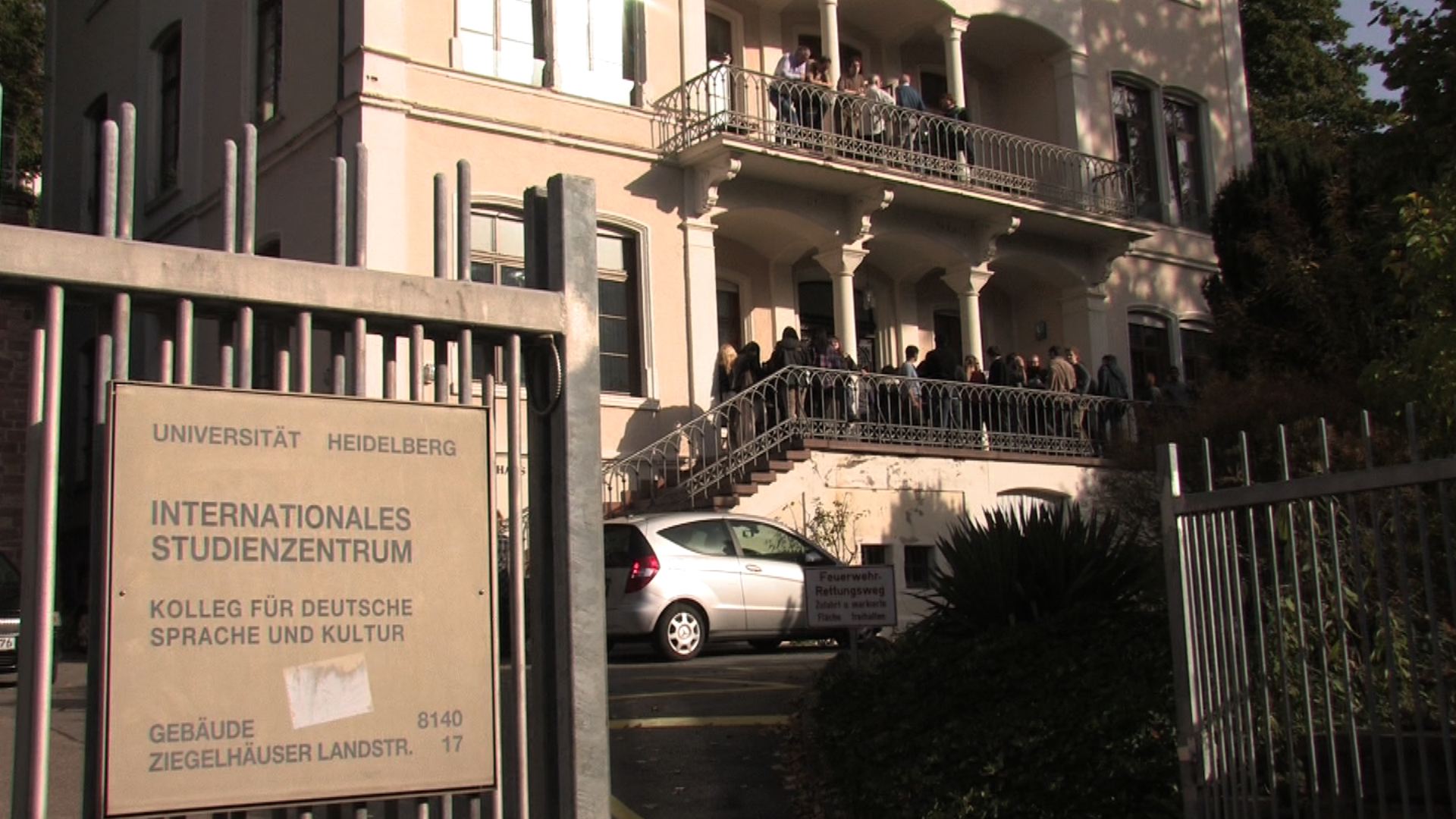
ProfiDaF I | Folge 3: “Der Einstieg in den Sprachkurs – Über die Heidelberger Innenstadt zum Internationalen Studienzentrum”
RUNNING TIME: Appr. 30 Min.
PRIMARY TARGET AUDIENCE: Learners of German as a foreign / second language from grade 9 / 10 onwards, with any first language and ideally with target language proficiency level at A2+/B1 and above (CEFR).
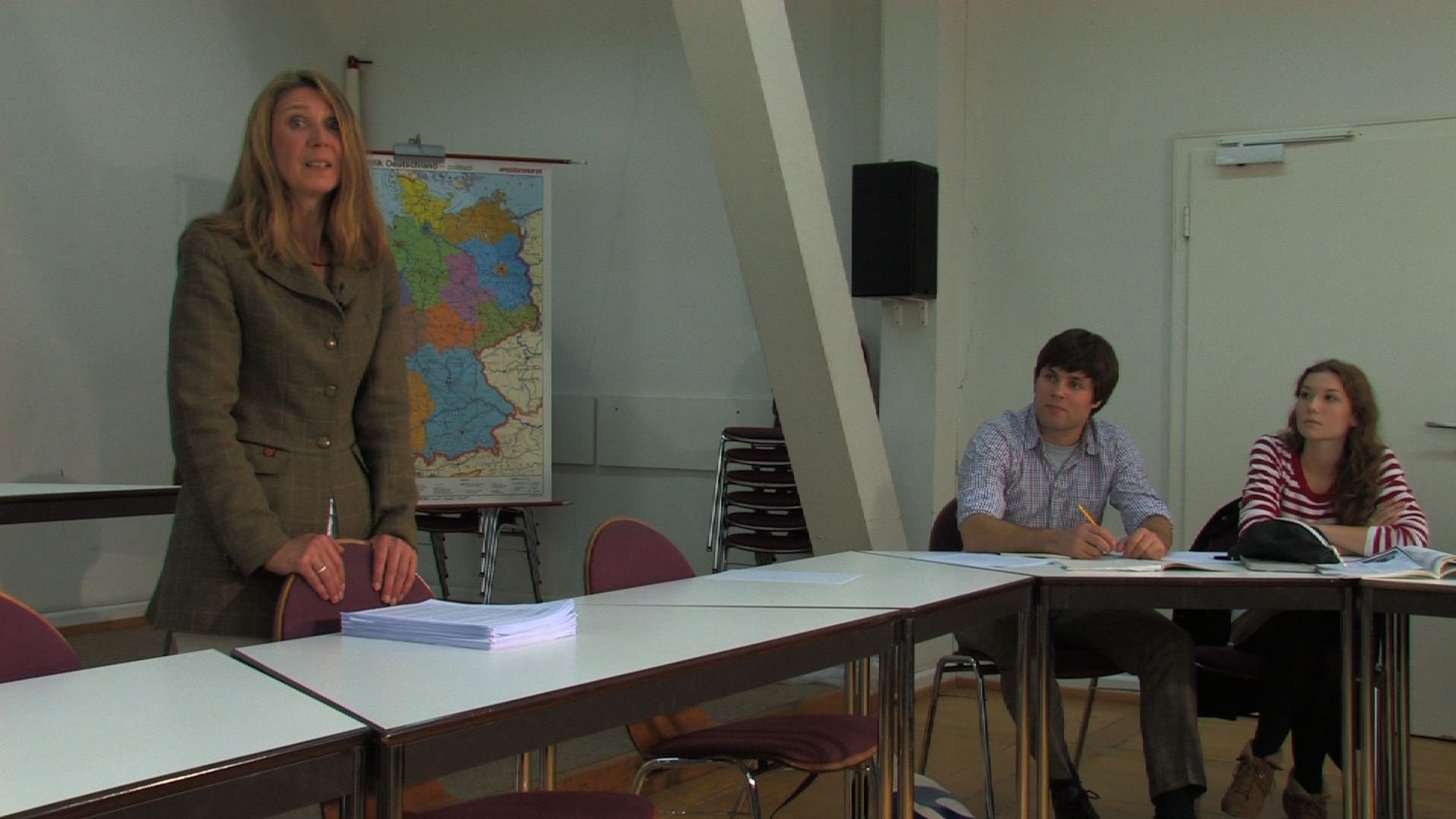
ProfiDaF I | Folge 4: “Sprachlich-kulturelles formell und informell – Nach der Textarbeit zurück in die Altstadt”
RUNNING TIME: Appr. 40 Min.
PRIMARY TARGET AUDIENCE: Learners of German as a foreign / second language from grade 11/12 onwards, with any first language and ideally with target language proficiency level at B1 and above (CEFR).

ProfiDaF I | Folge 5: “Vorlesungsbesuch am IDF – Ein “Insider-Blick” in das Uni-Milieu in Heidelberg”
RUNNING TIME: Appr. 40 Min.
PRIMARY TARGET AUDIENCE: Learners of German as a foreign / second language from grade 11/12 onwards, with any first language and ideally with target language proficiency level at B2 and above (CEFR).
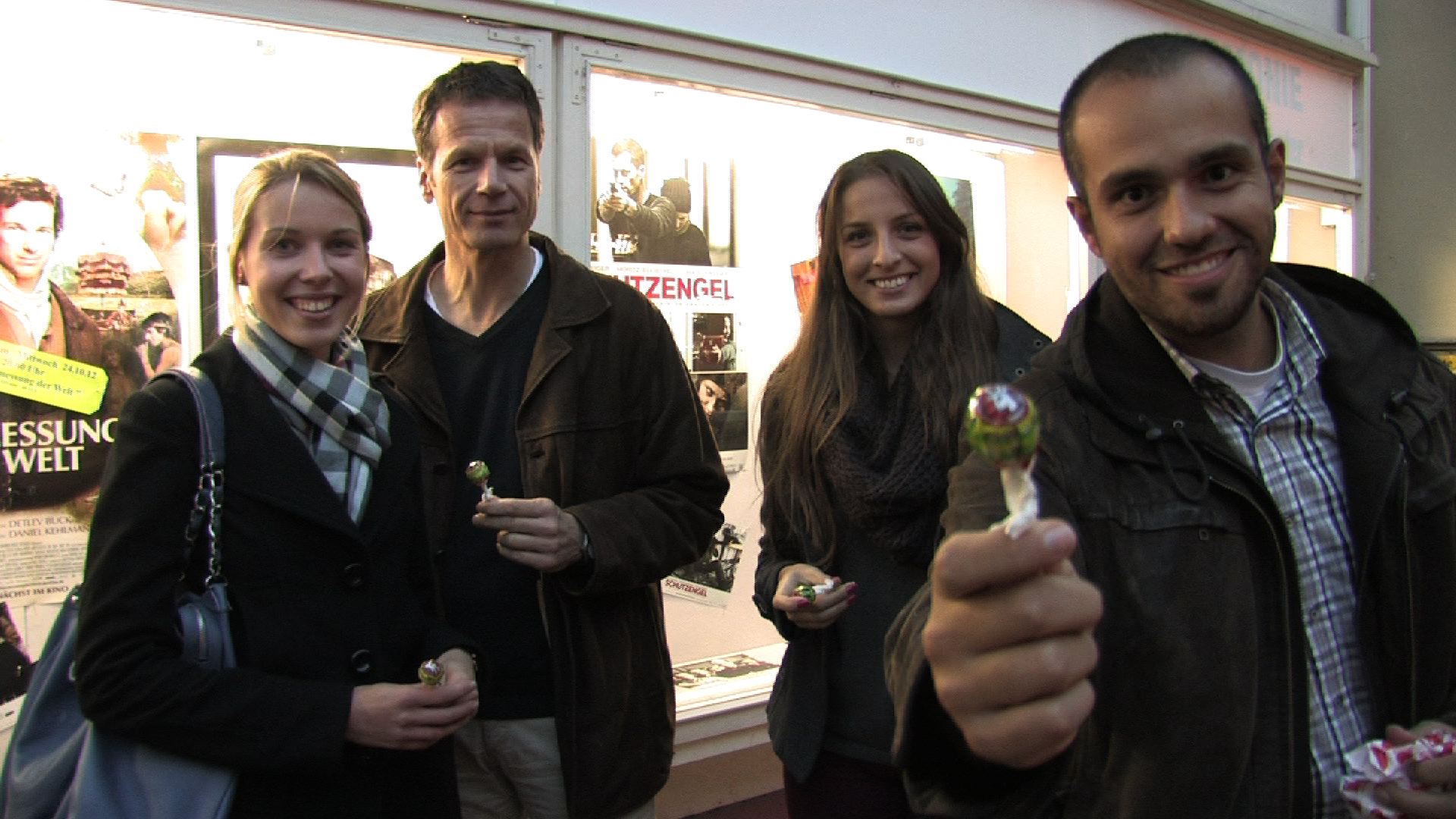
ProfiDaF I | Folge 6: “Abendlicher Spaziergang mit Konzertbesuch – Ein angemessener Ausklang für den Sprachkurs in Heidelberg”
RUNNING TIME: Appr. 20 Min.
PRIMARY TARGET AUDIENCE: Learners of German as a foreign / second language from grade 9 / 10 onwards, with any first language and ideally with target language proficiency level at B1/B2 and above (CEFR).
CRI | PUBLICATIONS & RELEASES
Video Documentaries
CLILiG 2005-2008: State of the Art and Development Potential in Europe
Film Summary on the first international Survey and Documentation Study on Content and Language Integrated Learning in German (CLILiG) | DE
RUNNING TIME: Appr. 28 Min.
“LangPerform 2011”: Trial Implementation of LangPerform Language Simulation Prototypes in Finland
Video Documentary on the Trial-Implementation of LangPerform Language Simulations (“Version 2011”) at several Finnish Pilot Schools in the context of “LangPro”, a national Professional Development Programme on Oral Language Proficiency | FI | EN (subtitles)
RUNNING TIME: Appr. 13 Min.
ProfiDaF I – “Impressions from the Trial Implementation of the 2013-version of the Simulation Tools – Case Example: ProfiDaF I
Video Documentary on the Trial Implementation of the Simulation Series “ProfiDaF I” at the University of Tampere, including a short overview of the “2013-version” of the LangPerform-Instruments in general | DE
RUNNING TIME: Appr. 10 Min.
ProfiDaF II – “The Simulation Series in Action”: Insights into Implementation & Use of the LangPerform-Tools – Case Example: ProfiDaF II
Video Documentary on the Implementation Start of the Simulation Series “ProfiDaF II” at one of the Finnish Pilot Schools in 2015 – including Interviews with participating Students | DE | FI
RUNNING TIME: Appr. 22 Min.
ProfiDaF II – “The Simulation Series in Action”: Short Version
Video Documentary on the Implementation Start of the Simulation Series “ProfiDaF II” at one of the Finnish Pilot Schools in 2015 – Short Version excl. Students’ Statements | DE
RUNNING TIME: Appr. 7 Min.
CLILiG-FINNLAND: Video Documentaries to the Survey Study 2013-2014 | Case Example: Kuopio, Finland
Content and Language Integrated Learning in German (CLILiG) – Case Example: Kalevalan koulu, Class levels 1-9, Kuopio, Finland.
Type of CLILiG Provision: Target-language enhanced content-subject teaching with relatively low target language intensity (CLILiG-Subtype II, cf. project report to CLILIG-FINNLAND (in German)). FI | DE (Subtitles)
RUNNING TIME: Appr. 17 Min.
CLILiG-FINNLAND: Video Documentaries to the Survey Study 2013-2014 | Case Example: Vantaa, Finland
Content and Language Integrated Learning in German (CLILiG) – Case Example: Martinlaakson koulu, Class levels 1-9, Vantaa, Finland.
Type of CLILiG Provision: Target language-medium content-subject teaching with initially fairly high and gradually declining target language intensity (CLILiG-Subtypes II and III, cf. project report to CLILIG-FINNLAND (in German)). FI | DE (Subtitles)
RUNNING TIME: Appr. 19 Min.
CLILiG-FINNLAND: Video Documentaries to the Survey Study 2013-2014 | Case Example: Tampere, Finland
Content and Language Integrated Learning in German (CLILiG) – Case Example: Tammelan koulu, Class levels 1-6, Tampere, Finland.
Type of CLILiG Provision: Target language-medium content-subject teaching with initially very high and gradually declining target language intensity (CLILiG-Subtypes III and IV, cf. project report to CLILIG-FINNLAND (in German)). FI | DE (Subtitles)
RUNNING TIME: Appr. 21 Min.
CLILiG-FINNLAND: Video Documentaries to the Survey Study 2013-2014 | Case Example: Lahti, Finland
Content and Language Integrated Learning in German (CLILiG) – Case Example: Mukkulan koulu, Class levels 1-9, Lahti, Finland.
Type of CLILiG Provision: Early target language sensitivity support through CLIL type education throughout classes 1 and 2 (CLILiG-Subtype I, cf. project report to CLILIG-FINNLAND (in German)). FI | DE (Subtitles)
RUNNING TIME: Appr. 14 Min.
CLILiG-FINNLAND: Video Documentaries to the Survey Study 2013-2014 | Case Example: Turku, Finland
Content and Language Integrated Learning in German (CLILiG) – Case Example: Puolalan koulu, Class levels 1-9, Turku, Finland.
Type of CLILiG Provision: Target-language enhanced content-subject teaching with relatively low target language intensity (CLILiG-Subtype II, cf. project report to CLILIG-FINNLAND (in German)). FI | DE (Subtitles)
RUNNING TIME: Appr. 23 Min.
CLILiG-FINNLAND: Video Documentaries to the Survey Study 2013-2014 | Case Example: Joensuu, Finland
Content and Language Integrated Learning in German (CLILiG) – Case Example: Joensuun normaalikoulu, Class levels 1-9, Joensuu, Finland.
Type of CLILiG Provision: Early target language awareness and sensitivity support through CLIL type language education from class 1 (CLILiG-Subtype I, cf. project report to CLILIG-FINNLAND (in German)). FI | DE (Subtitles)
RUNNING TIME: Appr. 14 Min.
CLILiG-FINNLAND: Video Documentaries to the Survey Study 2013-2014 | Case Example: Helsinki, Finland
Content and Language Integrated Learning in German (CLILiG) – Case Example: Itäkeskuksen koulu, Class levels 1-9, Helsinki, Finland.
Type of CLILiG Provision: A non-CLILiG learning environment with quantitatively intensified programme for German as a foreign language (DaF), as an alternative for enhanced target language input (cf. project report to CLILIG-FINNLAND (in German)). FI | DE (Subtitles)
RUNNING TIME: Appr. 15 Min.
CRI | PUBLICATIONS & RELEASES
Selected Articles & Reports linked to the LangPerform Simulations Approach
Haataja, K.:
Über die Variablen “Lernumgebung” und “Unterrichtsmethodik” beim schulischen Fremdsprachenerwerb und dessen Erforschung – Das Beispiel DaF in Finnland
Aus: AKTUELLES – Zeitschrift für den DaF-Unterricht in Finnland (Hrsg. von Goethe-Institut Finnland), 2005, 27-40.| DE
Haataja, K.:
“Content and Language Integrated Learning in German (CLILiG) – State of the Art and Development Potential in Europe”
FINAL REPORT – A complementary Document to the DVD Project Synopsis | 32 p. | 2008 | EN
Haataja, K.:
Das Konzept LangPerform
Entwicklung und Einsatz von Simulationsinstrumenten zur computermedialen Dokumentierung (fremd-)sprachlicher Kompetenzen – innovativ und integrativ
In: Jahrbuch Deutsch als Fremdsprache 36 | 2011 | 183-199 | iudicium | DE
Haataja, K.:
“Dem Mehrwert des CLIL auf der Spur”
Profilierung sprachlich-fachlicher Kompetenzen in CLIL-Umgebungen mittels Computertechnologie
In: Fremdsprache Deutsch | 54/2016 | Erich-Schmidt-Verlag | 2016 | DE
Haataja, K.:
Von Zweiklang zu Einklang, von Einklang zu “Synfusion”: Content and Language Integrated Learning (in German) CLIL(iG) – Integriertes Sprachen- und Fachlernen (auf Deutsch) – Einführung
In: Zeitschrift für Interkulturellen Fremdsprachenunterricht (ZIF) – Didaktik und Methodik im Bereich Deutsch als Fremdsprache | Jahrgang 18, Nummer 2 | Oktober 2013 | DE
Haataja, K.:
“Käytännön toimia kielikasvatuksen edistämiseksi – Kieliprofilointi, laaja-alainen (kielen-)oppiminen ja LOPS 2019”
ProfiLang 2020-21- täydennyskoulutussarjan taustoja ja tuloksia | CRI Publications & Releases 2021 | 7p. | 2021 | FI
Haataja, K.:
Kontinuierliche Sprach(lern)profilierung und filmisch-simulative Immersion in Sprache und Fach – Digitalisierung
der schulischen Sprachenbildung mit realem Mehrwert?
In: Zeitschrift Deutsche Lehrkräfte im Ausland 4/2023 | Aschendorff | Auch online: CRI | Publications & Releases 2023 | 12p. | DE
CRI | PUBLICATIONS & RELEASES
Books & Journals
Haataja, K.:
CURRICULUM LINGUAE 2007:
Sprachenvielfalt durch Integration, Innovation & Austausch | Linguistic Diversity through Integration, Innovation & Exchange | Diversité linguistique à travers l’intégration, l’innovation et les échances.
Conference Proceedings to “CURRICULUM LINGUAE 2007 | Tampere | 2007 | DE | FR | EN
Haataja, K. & Wicke, R.E.:
Integriertes Sprachen- und Fachlernen (CLIL): Sprache als Vehikel oder Zweiklang im Einklang.
Fremdsprache Deutsch | 42 / 2009 |Hueber | 2009 | DE
Haataja, K. & Wicke, R.E.:
Sprache und Fach – Integiertes Lernen in der Zielsprache Deutsch
Qualifiziert unterrichten | Hueber | 2015 | DE
Haataja, K. & Wicke, R.E.:
Fach- und sprachintegiertes Lernen auf Deutsch (CLILiG)
Materialentwicklung – Lehrerbildung – Forschungsbegleitung
Konferenzpublikation zu “CLILiG GLOBAL” | Erich Schmidt Verlag (ESV) | 2018 | DE
Haataja, Kim:
Integriert, intensiviert oder nach “altbewährten” Rezepten?
Über Auswirkungen der Lernumgebung und Unterrichtsmethodik auf den Lernerfolg beim schulischen Fremdsprachenerwerb | BAND 1
Eine empirische Untersuchung zur Bedeutung der zielsprachlichen Kommunikation im DaF-Unterricht
und dem Stellenwert deutschsprachigen Fachunterrichts (CLIL) für die Entwicklung mündlicher Sprachfertigkeiten im Deutschen (L2) als Fremdsprache bei L1-Finnisch.
Univ. Diss. Heidelberg | BAND 1 | 512 S . | 2004 | DE
Haataja, Kim:
Integriert, intensiviert oder nach “altbewährten” Rezepten?
Über Auswirkungen der Lernumgebung und Unterrichtsmethodik auf den Lernerfolg beim schulischen Fremdsprachenerwerb | BAND 2: TRANSKRIPTIONEN
Mit Einleitung zur Struktur und Durchführung des Tests und der Interpretation der Transkriptionen
Univ. Diss. Heidelberg | BAND 2 | 656 S . | 2004 | DE
Hasan, Eva-Lisa:
L’influence de l’âge sur l’acquisition de la prononciation du français.
Une étude pilote sur un test de prononciation utilisant le concept de LangPerform
Master’s Thesis | University of Tampere | School of Language, Translation and Literary Studies | French Language | 52 p. | 2011 | FR
Ilkankoski, Katja:
« Apprendre pour la vie ou pour une épreuve, telle est la question. »
Analyse de la compétence langagière en français des futurs bacheliers par un test pilote issu du concept LangPerform.
Master’s Thesis | University of Tampere | School of Language, Translation and Literary Studies | French Language | 124 p. | 2012 | FR
Ackermann, Markus:
LangPerformLab: Interactive Language Learning and Evaluation on the Web
Diploma Thesis | University of Applied Sciences Kaiserslautern, Germany | Department: Informatik und Mikrosystemtechnik Zweibrücken | 95 p. | 2011 | EN
Hymon Krister:
“LeCo: Learn & Conquer” Videobasiertes, interaktives Sprachenlernen
Diplomarbeit | Fachhochschule Kaiserslautern | Fachrichtung: Audiovisuelle Medien und Produktion im multimedialen Umfeld, Zweibrücken | 75 S. | 2010 | DE
Lechner, Simon:
Creation of a Brand – Case Study: LangPerform
Bachelor Thesis | Tampere University of Applied Sciences | Business School | Degree Programme in International Business | 101 p. | 2007 | EN
Tuuna-Kyllönen, Tanja:
Zur Beurteilung der mündlichen Sprachfertigkeit in der Endphase der gymnasialen Oberstufe
Der Test des Zentralamts für Unterrichtswesen und die Computersimulation “LangPerform” im Vergleich.
Master’s Thesis | University of Tampere | School of Language, Translation and Literary Studies | German Language & Culture | 78 p. | 2011 | DE
Wewer, Taina:
Assessment of Young Learners’ English Proficiency in Bilingual Content Instruction CLIL
Academic Dissertation | Annales Universitatis Turkuensis Series B 385 Humaniora | University of Turku, Finland | | 279 p. | 2014 | EN
Salo, Tiina:
Oral Proficiency in the Workplace Context
Computer-simulated Language Testing and Self-Assessment
Master’s Thesis | University of Tampere | School of Language, Translation and Literary Studies | English Philology | 80 p. | 2014 | EN
Helminen, Laura:
Developing Language Proficiency through Multimodal Learning Environments
Master’s Thesis | University of Tampere | School of Language, Translation and Literary Studies | English Philology | 60 p. | 2014 | EN
Matheis, Sebastian:
Postproduktion und Montage interaktiver Realfilmprojekte
Post-Production and Editing of Interactive Live Action Film Projects
Bachelor Thesis in Digital Media Marketing | Hochschule Kaiserslautern | University of Applied Sciences Kaiserslautern | Department: Informatik und Mikrosysteme, Zweibrücken, Germany | | 61 S. | 2022 | DE
Get In Touch
Our research and innovation work around languages, cultures and communication performance is meant to be useful and of use in real life – be it in educational structures, in professional contexts or elsewhere. We strive to feed creativity, to spark novel ideas and to provide guidance, help and support around and across our expertise areas – when- and wherever needed.
This goes, of course, also – and especially – for our publications & releases. Let us know anytime, if you would like to have more detailed information on our work – any of it. We are here for you and look already forward to hearing from you.
Seuraavassa tiivistetysti hankkeen strategisten tavoitteiden toteutumisesta muutamalla hankekokonaisuudelle ja sen ydintoiminnalle olennaisella osa-alueella:
- Hankkeessa hyödynnettyjen ja jo aiemmin muissa institutionaalisen kielikasvatuksen yhteyksissä verifioitujen teknologiaratkaisujen ja toimintamallien (erit. tietokonesimulaatiokonsepti) adaptointi lukiokoulutuksen kieltenopetukseen on sujunut kokonaisuudessaan mutkattomasti ja täysin odotusten mukaisesti.
- Itse kielisimulaatiokonseptin sekä tämän demonstrointiin hankkeessa hyödynnettyjen esimerkkimateriaalien integrointi osaksi lukiokoulutuksen kurssimuotoista kieltenopetusta on edennyt erittäin onnistuneesti. Hankkeen keskeisen toimintamallin ja tähän perustuvien työkalujen l i s ä a r v o on myös saatu selkeästi esiin sekä monikielisyyttä tukevien etäopetusmallien ja viestinnällisen, nk. kompetenssipohjaisen kieltenopetuksen näkökulmasta että (kielten-)oppimisen kaikkiallisuutta, ts. muodollisen ja epämuodollisen kielitaidon kehittymistä ja dokumentointia tukevia toimenpiteitä silmällä pitäen.
- Täysin odotetusti yhdeksi kaikkein keskeisimmistä kysymyksistä hanketoimintamme aikana on noussut lukiokoulutuksen tutkintorakenneuudistus, ts. yo-tutkinnon (kieli-)kokeiden sähköistämiskehitys. ProfiLang-UP-hankkeessa hyödynnetty kielisimulaatioratkaisu ja tähän pohjautuvat, toistaiseksi ainutlaatuisella tavalla ”elävän elämän” kielenkäyttökonteksteja myös akateemisissa yhteyksissä simuloivat materiaalit ovat hankkeen useissa eri vaiheissa nostaneet esiin kysymyksiä ao. toimintamallin ja yo-tutkinnon sähköistyvien kokeiden välisistä suhteista ja kehitystyöhön liittyvästä vuoropuhelusta. ProfiLang-UP-konsortio onkin ollut yhteydessä Ylioppilastutkintolautakunnan (YTL) käynnistämän sähköistämishankkeen (Digabi) edustajiin sekä ennen ProfiLang-UP-hankkeen alkua että sen kuluessa. Samoin Digabi:n asiantuntijat ovat tiedustelleet jo aiemmin (perusopetuksen puolella) toteutetun ProfiCom-hankkeen yhteydessä mahdollisuuksia hyödyntää kielisimulaatiokonseptia ja sen mukaisia materiaaleja tavalla tai toisella yo-tutkinnon kehitystyössä. Vuoropuhelu on ollut vilkasta ja rakentavaa, mutta konkreettista hankeyhteistyötä ei alustavaa ideointia lukuunottamatta olla toistaiseksi päästy vielä toteuttamaan. Yhteistyön ja rakentavan vuoropuhelun hyödyt tutkintorakenteiden kehitykselle on koettu puolin ja toisin hyvin ilmeisiksi jo keskustelujen alkuvaiheessa, joten konkreettisimmilta yhteistoimilta on täysin realistista odottaa selkeää tukea ajankohtaiseen ja kansallisesti merkittävään kehitystyöhön – erityisesti myös ainerajat ylittävän kielikoulutuksen aihealueilla.
Hankkeelle asetetut operatiiviset tavoitteet ovat niinikään toteutuneet pääsääntöisesti kiitettävästi, osin myös yli odotusten:
- Kielisimulaatiolaboratorion materiaaleja sekä kielitaidon analysointi- ja arviointityökaluja on päästy koekäyttämään kilpailutusprosessin vuoksi lyhyeksi jääneestä hankekaudesta huolimatta kaikissa hankkeen yhteistyölukioissa, useissa eri kohdekielissä;
- Sekä opettaja- että opiskelijapalautteet ovat osoittaneet, että ko. simulaatioratkaisu on täysin uudenlainen tietoverkkopohjainen analyysi- ja arviointiympäristö, joka avaa uusia mahdollisuuksia paitsi kielenhallinnan yksilölliseen profilointiin ja (itse-)reflektoivaan, kielitietoiseen kielenoppimiseen sekä sen tarkkaan dokumentointiin, myös kielitaidon arvioinnin kansainvälisten tuki-instrumenttin (mm. yhteisen eurooppalaisen viitekehyksen sekä kielisalkun) a r k i p ä i v ä n l ä h e i s e m p ä ä n ja ”h e l p o m p a a n” hyödyntämiseen sekä itse-, vertais- että ulkoisessa arvioinnissa.
- Lisäksi tietokonesimulaatioratkaisu näyttäisi palautteiden valossa – ja täysin tavoitteiden mukaisesti – tarjoavan aidosti lisäarvollisia verkkopohjaisia työvälineitä ja toimintatapoja lukiokoulutuksen kieltenopetuksen sisällöllisen ja menetelmällisen kehitystyön tueksi erityisesti a k a t e e m i s i a valmiuksia vaativien ja näitä kehittävien materiaaliesimerkkien avulla (vrt. mm. autenttisenomainen kielellinen toiminta kohdekielisessä ja -kulttuurisessa ympäristössä (ml. jatko-opintojen ja ammatillisen kielitaidon kannalta merkitykselliset ympäristöt ja niille ominaiset kielirekisterit);
- Palautteiden valossa simulaatioratkaisun voidaan myös vahvistaa avaavan uudenlaisia mahdollisuuksia yksilöllisen, erityistä tukea vaativan (kielen-)oppimisen ja kielitaidon testauksen tueksi. Simulaatiotyökalut ja –materiaalit tarjoavat uudenlaisia oppimis- ja testikokemuksia esim. kuulovauriosta kärsiville opiskelijoille, joiden ei ole mahdollista osallistua perinteisenmuotoisiin kuullunymmärtämisharjoituksiin tai -testeihin. Samoin videopohjaiset, ”immersiivis-simulatiiviset” toimintamallit näyttävät tarjoavan varsin onnistuneesti mahdollisuuksia ”kielellisesti aktiiviseen virtuaalimatkailuun” kohdekieliselle kielialueelle. Näin myös taloudellis-sosiaalisesti heikommassa asemassa olevien opiskelijoiden oppimis- ja kielenkäyttökokemuksia päästään monipuolistamaan ja syventämään asianmukaisella tavalla, lisäarvollisten teknologioiden mahdollisuuksia hyödyntäen.
- ProfiLang-UP-hankkeeseen linkitetyn tieteellisen seurantatutkimuksen tähänastiset kokemukset ovat niinikään osoittaneet, että kielisimulaatiot tarjoavat – jo oletetun mukaisesti – selkeästi uudenlaisia ulottuvuuksia kielitaidon dokumentoinnin ja arvioinnin tarkasteluun tutkimuksellisissa yhteyksissä sekä lukiokoulutuksen kielikasvatuksen eri konteksteissa että myös ammatillisen kielenhallinnan ja -oppimisen alueella. ProfiLang-UP-hanketta esittelevien julkaisujen ja konferenssiesitelmien myötä sekä itse toimintamalli että sen hyödyntäminen oppimisympäristöjen kehitys- ja innovointityössä ovat saaneet osakseen asiantuntijoiden huomiota myös kansainvälisesti ja johtaneet mm. uusien väitöstutkimushankkeiden syntyyn yhteistyössä mm. saksalaisten yliopistojen (Bamberg, Heidelberg) kanssa.
Crealang. Research & Innovation (CRI)
OFFICE HOURS
Mo – Fr 10:00 -18:00
LOCATION
Technopolis | Peltokatu 26
Building A | 2nd Floor | 275
FIN-33100 TAMPERE
FINLAND
© crealang. research & innovation oy (CRI) 2014-2026

